






Another year of important work in the TCFV community is drawing to a close. Our CEO, Alex Hamilton, has now been with us for over 18 months, with 2024 marking her first complete calendar year. The Board has had a coherent year, working together to fulfill strategic goals and guide TCFV. There are many highlights to share, but first, I want to acknowledge the values that sustain our organization.
Together, the Board and Alex strive to embody our ethos. For details, visit our website: www.compassionatefriendsvictoria. org.au/about-us/our-mission-and-values/. We operate collaboratively, with members often taking hands-on roles, such as leading bereavement groups, staffing the helpline, and participating in support activities, all while offering professional expertise in bereavement support. Many Board members contribute significant volunteer hours beyond Board duties. I deeply appreciate their work, and you can learn more about them in our Annual Report or on our website.
At our recent AGM, we confirmed our roles: I remain President, Amanda Bond as Vice President, and Claire Kuhnell as Secretary. Sonia Aberl, Robyn Reeve, and Bruce Houghton continue as “ordinary” members, doing extraordinary work. We welcomed Ann Smith, whose skills will be invaluable, and thanked Harriet Clegg and Vincent Wai, who have stepped down, for their contributions. We are delighted that Dr. Julie Cowley has joined as Treasurer, bringing extensive professional experience.
Our Board members strive to lead thoughtfully, drawing on their own experiences. This year featured key initiatives, such as the Illuminate 46 celebration, which marked our 46th year and strengthened our community connections, including with bereavement agencies. Alex’s leadership and networking efforts are making TCFV increasingly visible.
We also introduced the Grief Retreat weekend in collaboration with Southern Memorial Cemeteries Trust, replacing our traditional Gathering Weekend. About 80 participants engaged in bereavement support and self-care activities at Springvale Botanical Cemetery, with positive feedback on the setting and content. The retreat’s success reflects our commitment to innovative and supportive experiences.

The Spar10 event, inspired by my daughter Bronwyn’s journey after losing her brother Stephen in 2001, was particularly meaningful. It brought together a wide community in a story of resilience, showing how TCFV’s support can inspire enduring strength and healing, even through life-long grief. Please see page 19 for more photos from this event.
While these special events are notable, our daily work remains crucial. Calls to our helpline are rising, and our support services are expanding. The real impact of TCFV lies in being there for the bereaved, whether newly grieving or adjusting over years, and offering vital companionship. As we move into 2025, we hold fast to our core statement: “You need never walk alone.”
Kevin Purvis - President, TCFV
Dear friends
Welcome to the final magazine of 2024. The “festive” season, a time of joy for many, can be a heartbreaking and difficult reminder of who is missing from our celebrations. For me, it’s my son Joseph, who died at just 18. This will be our ninth Christmas without him. His favorite part of the holiday was always the food, and even at 17, he still wanted a chocolate advent calendar. Seeing them in the supermarket still fills me with sadness.
We understand that stepping into a new year can feel very heavy and overwhelming. The future holds moments our loved ones will not witness alongside us. Yet with the support of the TCFV community, we move forward together, leaning on shared understanding and compassion.
I hope you find some of the articles in this issue both helpful and meaningful. As always, we have included four pages of colour photos from events over the past few months, capturing moments of connection and friendship.
Whatever this time of year means for you—whether it’s the glow of Christmas lights and the sound of carols, lighting candles for Hanukkah as a symbol of hope and perseverance, celebrating

on community and legacy, or reflecting on the renewal of Diwali’s festival of lights—we are holding you in our thoughts. These cultural touchstones remind us of the power of light, resilience, and the comfort found in connection, even when our hearts are heavy.
Special thanks to TCFV volunteer Joanna Durst for all her help with proofreading, book recommendations and articles she has suggested throughout the year.
and love. Jane Moschetti
by Alan D. Wolfelt, Ph.D.
Though you should reach out to others as you do the work of mourning, you should not feel obligated to accept the unhelpful responses you may receive from some people. You are the one who is grieving, and as such, you have certain “rights” no one should try to take away from you. The following list is intended to empower you to heal and decide how others can and cannot help. It is not to discourage you from reaching out to others for help but rather to assist you in distinguishing helpful responses from hurtful ones.
1. You have the right to experience your own unique grief. No one else will grieve in exactly the same way you do. So, when you turn to others for help, don’t allow them to tell what you should or should not be feeling.
2. You have the right to talk about your grief. Talking about your grief will help you heal. Seek out others who will allow you to talk as much as you want, as often as you want, about your grief. If at times you don’t feel like talking, you also have the right to be silent.
3. You have the right to feel a multitude of emotions. Confusion, disorientation, fear, guilt and relief are just a few of the emotions you might feel as part of your grief journey. Others may try to tell you that feeling angry, for example, is wrong. Don’t take these judgmental responses to heart. Instead, find listeners who will accept your feelings without condition.
4. You have the right to be tolerant of your physical and emotional limits. Your feelings of loss and sadness will probably leave you feeling fatigued. Respect what your body and mind are telling you. Get daily rest. Eat balanced meals. And don’t allow others to push you into doing things you don’t feel ready to do.
5. You have the right to experience “grief bursts.” Sometimes, out of nowhere, a powerful surge of grief may overcome you. This can be frightening, but is normal and natural. Find someone who understands and will let you talk it out.
6. You have the right to make use of ritual. The funeral ritual does more than acknowledge the death of someone loved. It helps provide you with the support of caring people. More importantly, the funeral is a way for you to mourn. If others tell you the funeral or other healing rituals such as these are silly or unnecessary, don’t listen.

7. You have the right to embrace your spirituality. If faith is a part of your life, express it in ways that seem appropriate to you. Allow yourself to be around people who understand and support your religious beliefs. If you feel angry at God, find someone to talk with who won’t be critical of your feelings of hurt and abandonment.
8. You have the right to search for meaning. You may find yourself asking “Why did he or she die? Why this way? Why now?” Some of your questions may have answers, but some may not. And watch out for the clichéd responses some people may give you. Comments like “It was God’s will” or “Think of what you have to be thankful for” are not helpful and you do not have to accept them.
9. You have the right to treasure your memories. Memories are one of the best legacies that exist after the death of someone loved. You will always remember. Instead of ignoring your memories, find others with whom you can share them.
10. You have the right to move toward your grief and heal. Reconciling your grief will not happen quickly. Remember, grief is a process, not an event. Be patient and tolerant with yourself and avoid people who are impatient and intolerant with you. Neither you nor those around you must forget that the death of someone loved changes your life forever.
Marg Learmonth for the butterfly stickers in memory of her son John and grandson Kealan.
Johanna Cahill for the butterfly stickers in memory of Penny and Virginia.
Bianka Fucsko for the very generous donation.
To Bronwyn, Annabelle & Jeremy for running in the Melbourne Marathon Festival and for raising funds for TCFV. Between them they raised $5,307 an amazing effort! Please see page 20 for photos from the event.
Kerri Wellington (met through Victoria Police Legacy)
Biofield Tuning, Sound Medicine, Reiki 1 & 11
Bio Mat Therapy enquiry@ebbflowvibes.com.au www.ebbflowvibes.com.au
Thank you to everyone who joined us for the Dia de los Muertos event at the Centre. It was a heartfelt evening of warmth, compassion, and connection. We shared stories of our loved ones and enjoyed their favourite foods together, including Ritz crackers and cheese, Doritos, sushi, burritos, egg sandwiches, chicken nuggets, apple crumble, Tim Tams, brownies, and so much more! Including Sangria Going round the room and hearing stories of our loved ones, why the food we brought to share was special and getting to know each other and those we have lost was heart lifting. Please see page 17 for a photo taken at the Event.
What a beautiful, heartwarming evening we had at the Centre for Oaks Day, filled with laughter, friendship, and wonderful connections. The back room looked stunning, and we indulged in delicious food, Prosecco cocktails, and, of course, everyone left with a little something special from our door prizes.
A huge thank you to everyone who joined us and added their sparkle to the night by dressing up. Your presence made the evening unforgettable.
We’d love to see even more faces next year – come and be part of this lovely tradition. Until then, take care and hold onto the warm memories we’ve created together. Please see page 19 for some photos taken on the night.
A big thank you to everyone who submitted articles to this edition, and to the mailout team for preparing the SPRING edition for posting out to members, we could not deliver this magazine to you without the help of many people. Jane.
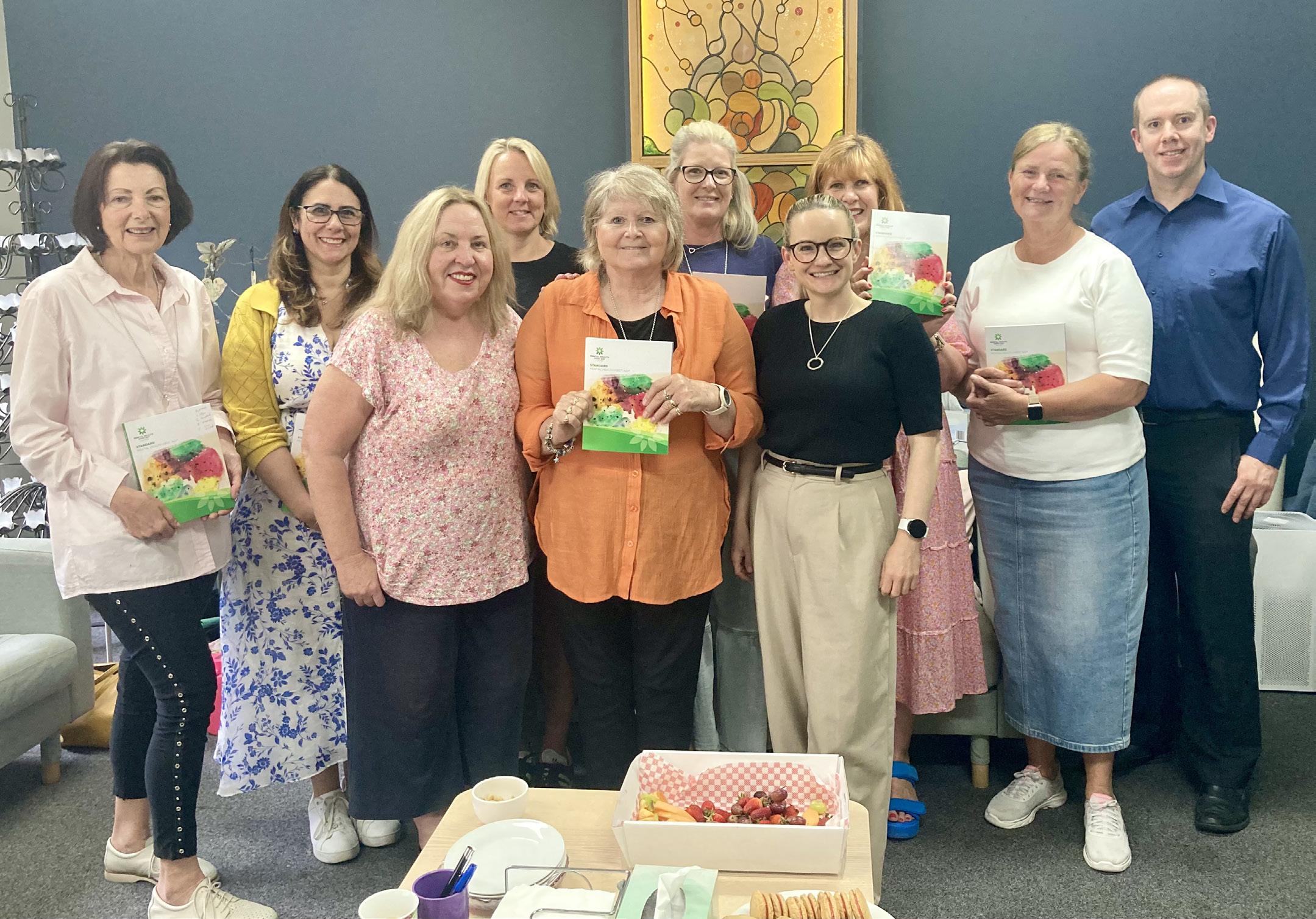
On Tuesday 12 November, two TCFV staff members, Andrew & Jane plus seven dedicated volunteers, including a few of our phone responders and group leaders, took part in a comprehensive Mental Health First Aid training. The course involved around 7 hours of e-learning, followed by a 4-hour in-person session. To complete their certification, they will each take an online quiz soon!
A huge thank you to Melissa from The Wellbeing Campus for delivering this vital and relevant training. We’re committed to ensuring our team is equipped to support our community with compassion and care.

Here we are in the midst of summer. Despite also dealing with Christmas and other religious festivities, there are variations of school holidays, barbecues, beach outings, poolside cocktails, and outdoor sports. The days are long and from sunrise to sunset, there is an emphasis on enjoying the fun of the summer season, with a big cheerful smile on your face.
After all, it’s summertime and the living’s easy, as the old saying goes.
But what if you were just hit with the most awful experience of a lifetime?
Summertime grieving
Your loved one has died. Grief can be more intense in the summertime because it looks like everyone, except for you, is out there having a great time. Especially in the first summer after a loss, the absence of that summer joy can be felt very acutely.
Wintertime grieving
Wintertime grieving somehow feels easier for some people, since their mood matches the darkness of the days, the bitter cold temperatures (depending upon where you live), and the “indoors” mentality during the season.
Whether you want it or not, summer is here
Here are some thoughts that might give you some perspective as you navigate the next few sunny months.
• UNDERSTAND that it’s okay to not want to spend the summer months feeling festive and celebratory.
• UNDERSTAND that it’s okay to indulge in your favourite summertime activities, even though you are grieving. Enjoying yourself does not mean you are not grieving. It does not mean that you stopped loving or missing your loved one. It means that you are willing to still try to do what you enjoy. After all, you are still alive.
• UNDERSTAND that healing begins with taking care of yourself too. That includes getting fresh air as well as vitamin D from the sun, taking advantage of the nice weather to take a walk and get moving a little. Fresh air and outdoors can sometimes clear your head too and make feel a little less heavy during tough times.
• BE CREATIVE. On a good day, you might want to take a favourite activity and do it in a special way to honour your loved one. If you spent some playing tennis with him or her, try to play a game or two and do it in their honour. If the summer included at least one night of lobster rolls or ice cream cones, treat yourself to whatever it is that made summer memorable for you. It’s okay to enjoy something even if your loved one can no longer do so.
• TRY SOMETHING NEW. Decide to start a new summer ritual. Make new memories with new people. If you feel up to it, take a trip. Meet new people. Take up a new activity. It will help lift your spirits in a healthy way.
• REMEMBER that summers will get better. Grief feels like it will never end, but it will ease up, lessen, and become less painful as time goes by. The one thing about summer is that there are not many rules. Take each day as it comes and do what comes naturally.
• One smart move might be to look for a support group so that you can find a group of like-minded people going through the summer grief experience too.
Most importantly, let yourself do whatever makes you feel as okay as you can be.
Taken from: https://www.jillgriefcounselor.com/blog/itssummertime-and-the-livings-easy-unless-youre-grievinga-loved-one-hl9by

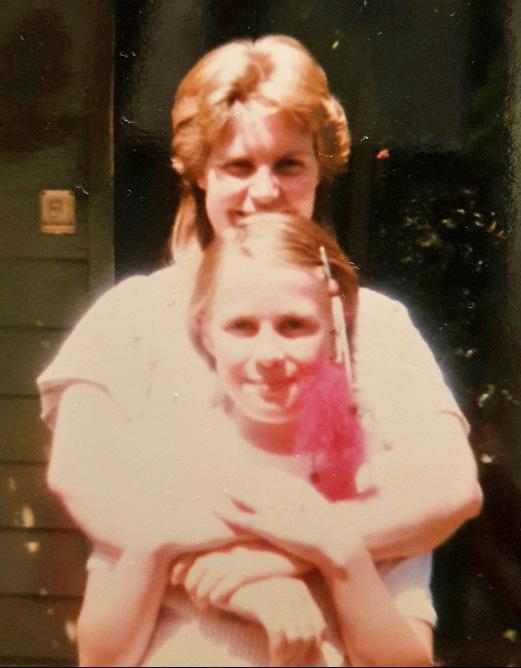
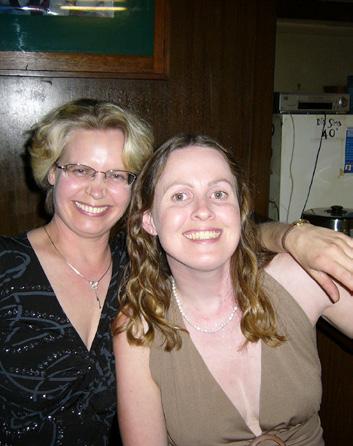
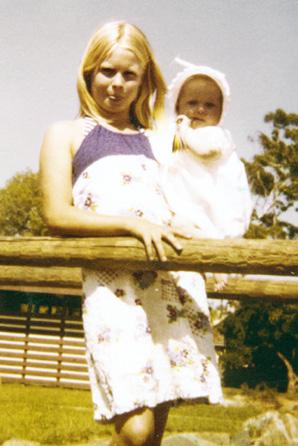
5 long years without you, Penny. So much has happened, so much I haven’t got to tell you, to share with you.
I can put myself back into our last days so easily, like it was yesterday, yet it also feels like way too long ago. Too long since I heard your laugh, felt your hug, shared your pain, marvelled at your strength.
I miss you so much still and I’m guessing I always will. You were there for me every single day since the start. You guided me, loved me, argued with me, laughed and cried with me. You were such a big a part of my life and it will forever feel a bit strange not having you be a part of things now. No matter how much time passes.
We were meant to grow old together, we were meant to only ever be no more than a phone call away. You were meant to see my kids grow up and spoil them rotten. You were meant to live a long happy life!
Yet, it seems that the ‘long’ bit just wasn’t meant to be after all. I’m sorry. But I am also extremely grateful that you were here for as long as you were. I’m so glad you were my big sister. I’m so glad you loved life, family, work, romance, travel, books, every type of TV show, food, poetry, music, dancing.
You loved so much. And you were so loved. And that won’t ever change.
Love always from your little sister, “bloss” (Johanna)
The month of December will never be the same again, for me & probably many others.
When most people are celebrating the Silly Season, as some call this Christmas month, I for one will be thinking of my son, Benjamin, who almost 4 years ago on December 19th, sadly passed away at the age of 27 years.
Since then, it’s a difficult time of the year, as many of you would understand, as we try to show joy & be merry for family & friends. But life goes on, and to help coping & deal with Christmas I try to remember how funny & mischievous Ben was, & I’m continuing one of his Christmas traditions which was buying the Lindt little red or gold bags of chocolates at the last minute when they are reduced on Sale! to give to his brothers & sister, as he would regularly be saving for Travels, he wouldn’t spend too much on gifts at Christmas. And speaking of Travels, I wanted to share this funny little anecdote with you all, to illustrate his sense of humour. On his first trip out of Victoria, he travelled to Sydney with his girlfriend & her family, he was 17 & had long hair at the time. And Ben being Ben had a photo taken in front of the Opera House with his Melbourne Victory scarf.
RIP my beautiful funny Ben!
Alicia
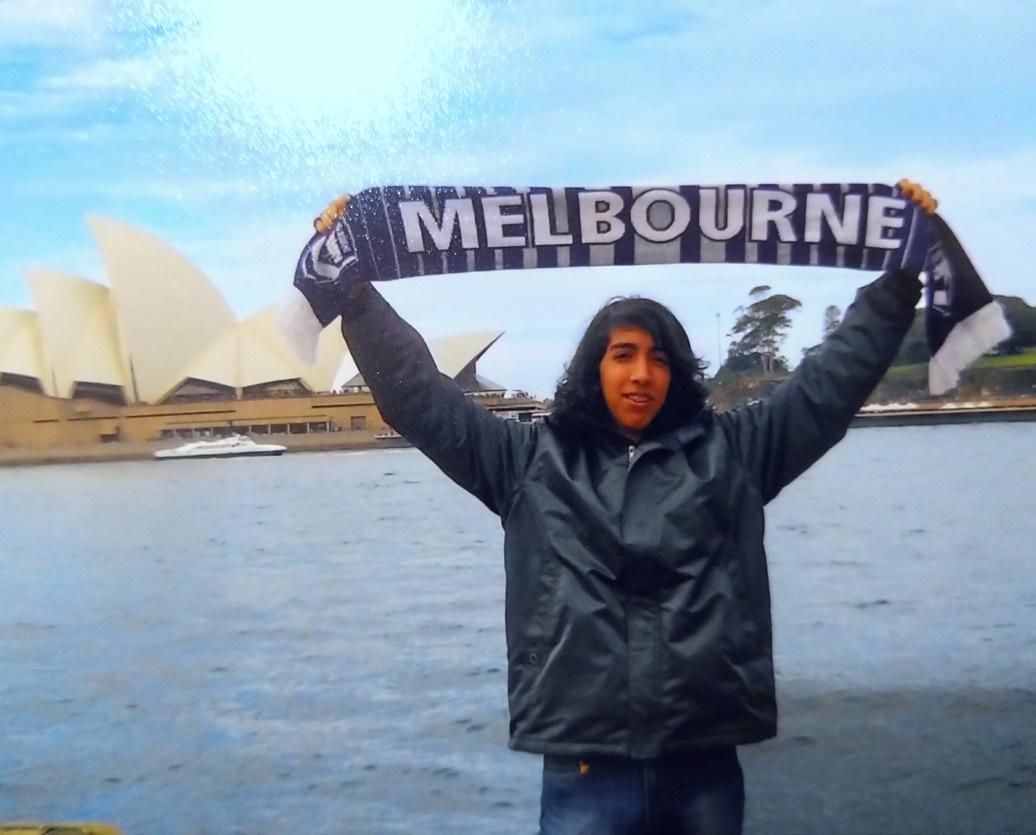
Lilly was my only sibling. As the seventh year of her passing approaches, I reflect on how those years have impacted on my life. The anniversary of Lilly’s passing roughly coincides with Halloween and every year when our streets are adorned with decorations and the stores are filled with Halloween merchandise and children are seen trick or treating, tears come to my eyes, it is this time of year that signifies Lilly’s decline with terminal cancer.
Death is never expected even when it is. You can’t prepare for it and can’t imagine what it is going to be like to lose a person that you have so much love for.
Not a day goes by that Lilly is not in my thoughts and I reflect on all the things she has missed out on, as well as what I as a sister have missed.
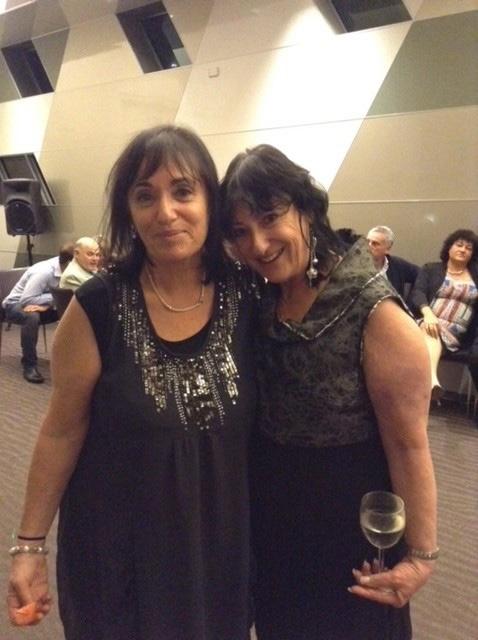
Lilly has missed out on seeing grandchildren being born and seeing them grow up. Being involved in their lives would have been her pride and joy. It saddens me that Lilly didn’t get to spend time with our elderly mother whom she loved so dearly.
Lilly was very sociable and loved spending time with her family and friends. It pains me to this day to see her friends at social gatherings and that she is not part of it.
She loved to travel and see the world. Those dreams, however, were cut short, as was her chosen career as a primary school teacher.
My greatest loss in losing Lilly is the time that we would have had together now that our lives are not as busy. Not having the opportunity to spend my retirement and future with Lilly is devastating. We would have travelled together, gone to shows and just enjoyed each other’s company wherever we were, plans that never came to fruition. We would often just hop in the car and go on long drives together. Even if we would see each other every day we always had something to talk about.
I miss the special occasions we celebrated together, just the two of us or with our families.
Having a person that you trust with your innermost thoughts and sharing all the trials and tribulations that life brings.
My children have lost their only auntie, and my grandchildren didn’t have enough time to form memories of Lilly. I no longer have my sister to recall the history we shared for so many years.
You can be surrounded by people but still feel alone. After your sibling dies there are no replacements. Sibling grief is often neglected and unsupported. This is where Compassionate Friends Victoria became a lifeline providing support, empathy and understanding. Sharing with other bereaved siblings has been cathartic and therapeutic, long after everyone stops talking/asking about the loss of your sibling you have someone to turn to.
Lilly was not just a beautiful sister; she was my best friend.
By Yvonne Landsberg Bereaved Sister of Lilly Rozen
If you’ve recently lost a close family member or friend, this Christmas will inevitably be different. Before you make plans, try talking about the fact that it might be really hard this year. That way others will feel that it’s OK to be sad and there’s no pressure to put on a brave face.
Family relationships often get strained around Christmas, and if you’re coping with grief, you might feel extra anxious about getting together. Be open about your own needs and flexible around other people’s. If you can’t face organising a meal or visiting relatives, maybe a family walk or video call could work?
We all handle bereavement in different ways, and the festive season can bring back memories that intensify your feelings. To lessen the physical effects of losing a loved one and look after your mental health, stick to a basic everyday routine: Get up, eat regularly, get some daylight and exercise, and keep in touch with people around you.
4. Limit alcohol
‘Tis the season to be boozing – but overindulging to dull your feelings after a bereavement can make you feel a lot worse, and lead to arguments, depression, even addiction.
5. Do it differently
Christmas traditions can seem meaningless when your loved one isn’t there to share them. If something doesn’t bring you joy, don’t do it. It’s OK to not write Christmas cards or cover the house in multicoloured twinkling reindeer – motivation after losing a loved one to participate in festive activities can be hard to find. Go away somewhere new, curl up on the sofa, or skip the celebrations completely. The people who love you will understand.
6. Remember your loved one
Christmas without a loved one is hard, but there are many ways to keep your loved one’s memory alive during the holidays. For example, light a candle by their photo or grave, decorate a bauble – or the whole house – in their honour, serve their favourite food, or buy something they would have loved and give it to someone who really needs it.
7. Make new traditions
If you’re ready, try creating new traditions that suit your life now. If turkey was never really your thing, maybe now is the time for steak and chips, sushi or a slap-up veggie meal? Or donating to charity instead of buying presents and inviting the neighbours around for mince pies.
8. Talk about them
Mentioning people we’ve lost can feel comforting. Make a toast to them, or to ‘absent friends’, on Christmas Day. And if it feels right, watch old video clips or look through photos together. Many people don’t know what to say to someone grieving, but if you can, start talking about them.
Sometimes focusing on other people’s needs can give you a break from your own grief. If you’re feeling up to it, offer a helping hand to someone else who is struggling.
10. Express yourself
If you’re missing them terribly, don’t keep it all bottled up. Pour it into a letter or Christmas card, paint or draw a favourite memory, belt out a Christmas classic (with or without an audience), talk to someone or join a grief support group. You’ll feel better afterwards.
Reflect
Try thinking about things you’d like to do in the coming year. From painting your bedroom or joining a choir to starting bereavement counselling or moving house: make a list of things that will make you feel better. You might change your mind, but at least you’ll emerge from Christmas with some ideas for what your future could look like now.
At Christmas, we can all feel the pressure to show up, whether that’s physically at parties or emotionally, through acts of giving. If that all sounds too draining, feel free to decline. Your friends and family will understand.
Paring back Christmas can feel right for some people, especially in those first few Christmases after losing someone. Opt for Secret Santa instead of buying presents for everyone and perhaps make a donation to your loved one’s favourite charity instead of buying and sending Christmas cards.
14. Attend a local memorial service
Many faiths hold memorial services at Christmas for those we have lost in the years past. Being with others who are grieving at this time of year, and sharing that loss in a faith setting, can prove very healing.
Some people find throwing themselves into Christmas is a nice way to keep themselves busy and their mind off their grief. Try making from scratch what you would have made yourself: mince pies, cards, presents, gravy… The festive season offers plenty of extra work if that’s what you need.
16. Dabble
Anxiety is a very common symptom of grief and feeling alone. Slow down racing minds by doing something mindful with your hands instead. Adult colouring books, knitting etc.
17. Connect with nature
Getting amongst nature improves our overall wellbeing by reducing feelings of stress and sadness, and Christmas offers us lots of opportunities to connect with the season, woodland walks collecting foliage to bring indoors and dress the house with is a longstanding tradition and, if you’re grieving, this can prove impactful.
18. Ignore Christmas altogether
If it all seems too much, you don’t have to embark on festivities at all. Christmas is, after all, just another day. Shut the curtains, order in food and find a new television series to get your teeth stuck into.
Taken and edited from … https://untanglegrief.com
The grief that follows bereavement is a deeply personal experience, but many myths in society can exacerbate the suffering of those who have lost a loved one. Misconceptions, such as the idea that grief follows a number of stages, a predictable timeline, or that one must ‘move on’ fail to acknowledge the complex, individual, and enduring nature of grief. This can often result in those who are grieving feeling hurt, misunderstood, dismissed, and unsupported.
Grief is not an illness, nor a mental disorder, but a normal response to the death of a loved and cherished individual. Although bereavement is always painful, research consistently shows that the death of a child causes the most intense and often lasting pain for parents. The pain of losing a sibling can also be immense, and for many individuals it can be more profound and unsettling than the loss of a parent.
So why are misconceptions about grief so widespread? Factors such as cultural norms, portrayal in films and other media, taboo causes of death, and societal discomfort with discussing death may contribute. For example, our educational system often overlooks important topics like bereavement and grief, leaving many young people to develop into adults without an understanding of these natural, yet profound, human experiences. This gap can lead to a lack of empathy, understanding, and preparedness when encountering the loss experienced by another individual. And despite the wealth of information on the internet about mental health, some of this information is misleading. Consequently, many people are unable to recognize different manifestations of psychological distress in others and fail to comprehend that a person’s sense of loss after losing a loved one can endure indefinitely.
Health literacy is defined as the ability to access, comprehend, and utilise information in ways that support and sustain good health. Many members of the general public hold limited mental health literacy, and apart from being unable to recognize specific mental disorders, they can also hold different beliefs from mental health experts regarding the causes of mental disorders and the best treatment protocols.
Attitudes that prevent recognition and appropriate help-seeking are also common. Additionally, with the accessibility of diagnostic resources like the DSM-5TR or ICD-11 (International Classification of Diseases,
11th revision) online, some individuals attempt to diagnose others without proper training, experience, or qualifications. This can lead to false diagnoses, misinterpretations, and stigmatization, as these resources are intended for professional use only.
The Diagnostic and Statistical Manual of Mental Disorders, Fifth Edition, Text Revision (DSM-5-TR) was published in 2022 and includes a new disorder, prolonged grief disorder (PGD). This has raised concerns that classifying grief as a disorder could perpetuate societal intolerance of ongoing grief and unfairly target individuals whose lives are forever changed by the loss of a loved one. Whilst this is a possibility given that the book is available to the public, it is important to reiterate that the DSM-5-TR is a tool designed specifically for trained professionals.
The inclusion of PGD is not intended to pathologise natural grieving processes or diminish the universal but profound experience associated with the loss of a loved one. Instead, it aims to identify and support those who are experiencing an unusually intense and sustained form of grief that causes significant distress and severely impairs their ability to function in daily life.
It’s important to emphasise that experiencing prolonged grief does not automatically mean an individual has PGD. Studies have estimated that PGD affects around 7 to 10% of bereaved individuals, with certain groups such as older adults, those with a history of depression or bipolar disorder, individuals perceiving lower levels of social support, and those who developed insecure attachments to caregivers in childhood being more susceptible. Caregivers, particularly those who cared for a partner or had previous experiences with depression, are also at higher risk.
Furthermore, the likelihood of PGD increases when the loss occurs suddenly or under traumatic circumstances. Recognizing these risk factors can assist health professionals in identifying bereaved individuals who may be at risk of developing PGD. Furthermore, including the diagnostic criteria for PGD in DSM-5-TR provides mental health professionals with a standardized method to help distinguish between typical grief and this prolonged, persistent, and debilitating form of grief.
While PGD can occur alongside a major depressive disorder or PTSD, it is a distinctly different condition with its own unique symptoms, which necessitates a separate classification. The descriptions of disorders can sound objective and unemotional because they are typically written in clinical and scientific language meant to convey precise information without ambiguity. However, diagnosis must always be integrated with person-centred care - health care that is safe and high-quality because it honours and addresses the preferences, needs, and values of the client. In this regard, it’s important to recognize that those who seek professional help for their unrelenting anguish, their pervasive, intrusive and unwanted thoughts, and their preoccupation with their loss, do so because they desperately want relief from their suffering.
Additionally, the inclusion of PGD in the DSM-5-TR parallels advances in evidence-based therapeutic treatments specifically developed to help reduce symptoms of the condition. Beyond the relief that treatment may provide, there are other significant advantages to identifying and treating PGD in affected individuals, given that the condition is linked to negative health outcomes that increase the risk of mortality from all causes. Of notable concern is that PGD is associated with an increased risk of suicide.
Mental health professionals are trained to assess people’s thoughts, emotions, and behaviour, and provide evidence-based treatment to help restore healthy thinking, emotional regulation, interpersonal functioning, mood, and wellbeing. However, the act of diagnosis itself can be problematic. Some professionals resist diagnosis because it can be seen as labelling the client, viewing them from a medical perspective, creating stigma, and potentially overlooking the client’s lived experience.
On the other hand, one of the major benefits of diagnosis is that it guides evidence-based treatment. Sharing a diagnosis with a client may also help them to better understand their difficulties and make sense of their distress. A further benefit of diagnosis is that it can inform other health care providers and subsequently direct interventions. For example, a doctor’s diagnosis of a mental health condition can enable the recipient to obtain a Mental Health Treatment Plan for subsidised care and support from a psychologist or accredited mental health social worker.
In writing this article, I intentionally omitted the DSM5-TR diagnostic criteria for PGD, as determining whether someone may have this condition is far more
nuanced than simply checking off symptoms against a list in a book. It is also important to emphasize that if an individual seeks professional support, then providing person-centred care aimed at validating their experience, reducing their distress, exploring healthy coping strategies, and cultivating hope for the future takes precedence over any diagnostic label.
Fostering a more empathetic view of grief within society will require public education and awareness campaigns, delivered in partnership with grief and bereavement support services which already provide invaluable support to individuals and families navigating loss.
Furthermore, fostering empathy through media representation, well-designed workplace bereavementleave policies, and open discussions about grief can not only offer additional support to bereaved individuals, but hopefully contribute to positive societal shifts in attitudes toward bereavement, grief, and loss.
Melissiah Diabel (TCFV) Sister of Charmian

Jan Harrison lost her only child Melissa, aged 19, to suicide in 1995.
Jan became a volunteer in at the centre in 1997, 2 years after Melissa died. She followed on by attending the Telephone Listening Course in 1998, & then the Group Leadership Training in 1999.
Her impressive wide variety of contributions have continued up to the present. They included volunteering at the TCFV centre, many years in support group leadership, TCFV telephone support, public speaking about TCFV, being on the TCFV Board, workshops at TCFV Retreats & Gatherings. And she has also been involved with a wide variety of one-off Art- related projects (including contributing to the TCFV magazine & current logo design).
Jan gave strong Support Leadership to the TCF Suicide Support Group from 1997 for many years, & at times leading the group. She facilitated the General Canterbury Day & Evening groups at different times and acted as the support person in the Listening Skills course when needed. For 10 years along with Danny Bendel she ran the Box Hill Suicide Social support group and was a member of TCF’s public speaking team, and spoke to a number of community groups, including hospitals, universities.
Jan’s involvement with retreats/gatherings was running Well Being sessions – incorporating selfcare, meditation, massage & reiki which she also ran at the Centre for a period of time.
Jan’s most recent contribution to TCFV was running a session at a Topics around Grief workshop on “The Death of an Only Child”
Ronda McIntyre lost her 5year old son Troy in July 1987.
As Ronda has noted, “phone calls were generally the convenient way of grief support in the rural areas.”
Encouraged by a supportive neighbour, and social worker by profession, Liz Bottrall, Ronda formed a support group in the Horsham Wimmera area in 1989 as group leader, and has been a group leader in regional Victoria for 35 years with attendees travelling from as far as a 1 ½ hour drive away.
In 1992, Di Lewis – bereaved mother of Julian – joined the group meeting team, with Ronda as leader and Di as support. Di’s involvement also included providing a welcoming venue.
And then there was regional phone support: Ronda and Di would often debrief amongst themselves about very lengthy calls they received from parents – and some of these were from extended areas; from the Mallee in the north, to Hamilton in the south, from the South Australia/Victoria border in the west, to Stawell and Ararat in the east.
Ronda has noted that over the decades she and Di have striven to actively educate the community and to address the shortfall of facilities and difficulties for bereaved parents in relation to rural areas. There has been an active advocacy with the police and hospitals.
With the support of Jon and Sue Stebbins, Ronda and Di also hosted a forum on suicide and another on bereaved people’s experiences of dealing with professionals. Professionals were invited to hear TCFV member’s stories and input; as well as input from Allan Anderson, a local minister who had had much experience working with families involved in the Port Arthur massacre.
In 2011, Ronda wrote, “I believe my input to The Compassionate Friends has served to forge my character and has given me an enormous knowledge on how to cope with life, and to find the meaning of life, despite being overwhelmed and consumed by Troy’s life and death for a very long time.” Ronda continues a smaller-scale involvement with TCFV as a regional contact.
Jan and Ronda, you have both made wonderful contributions in memory of Melissa and Troy through supporting bereaved families in so many different ways over a very long period. You are such worthy recipients of the Rhys Harmer Award, Melissa and Troy would be very proud of you both.
CONGRATULATIONS & THANK YOU.
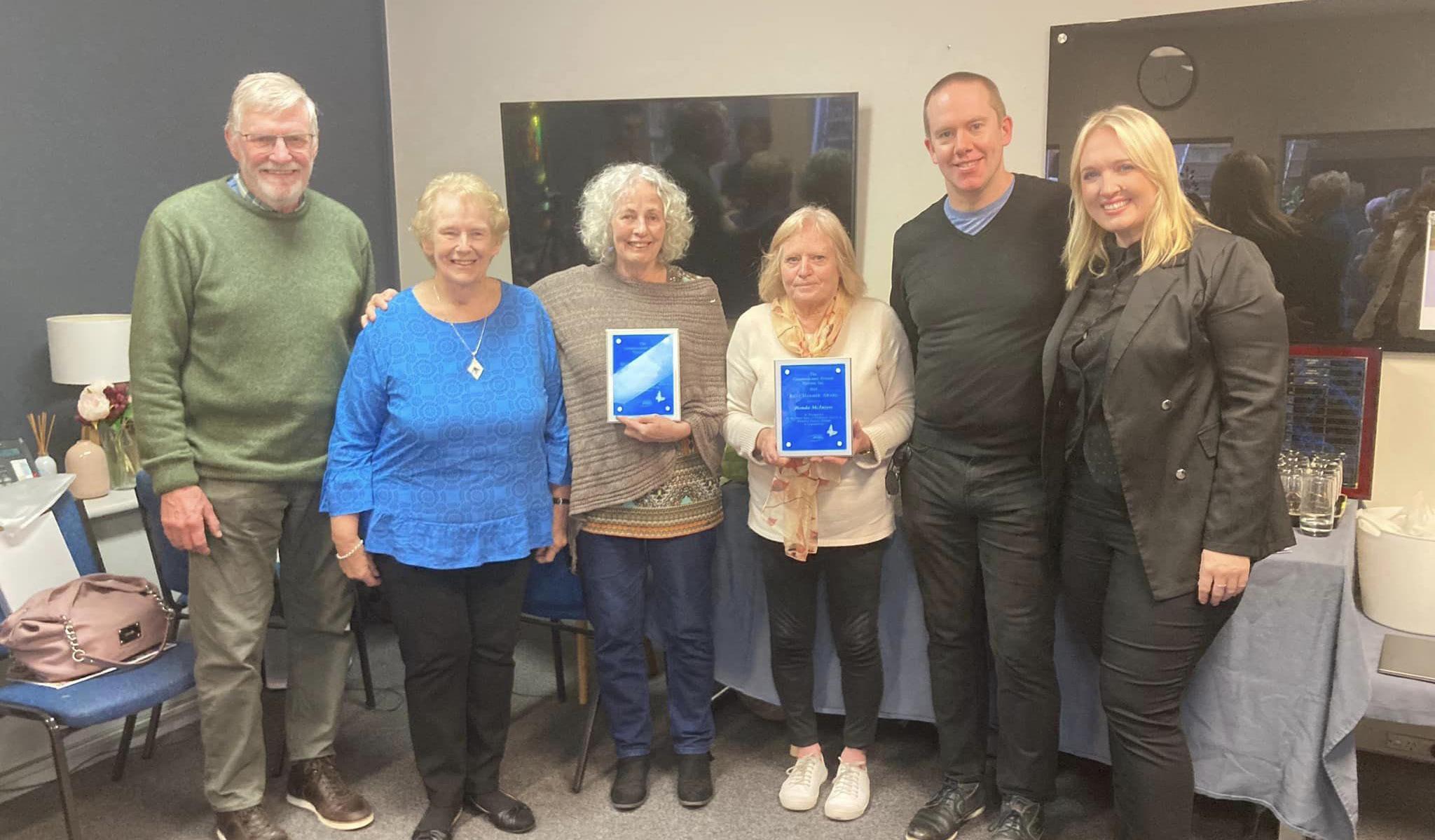
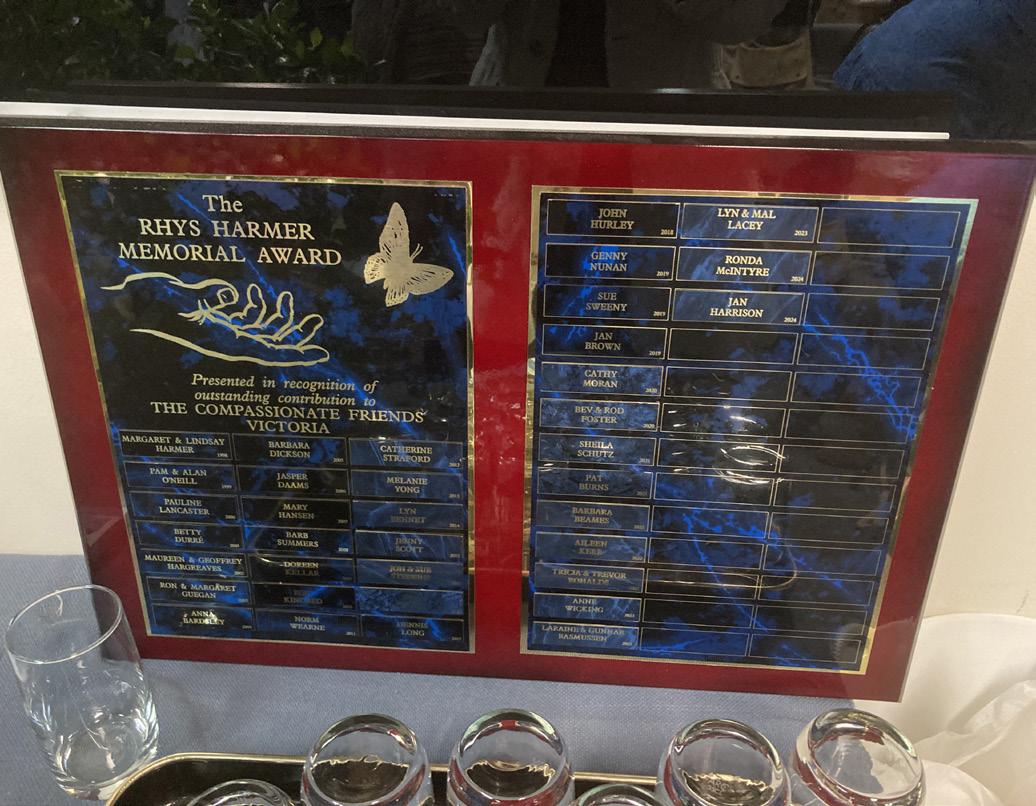
set up
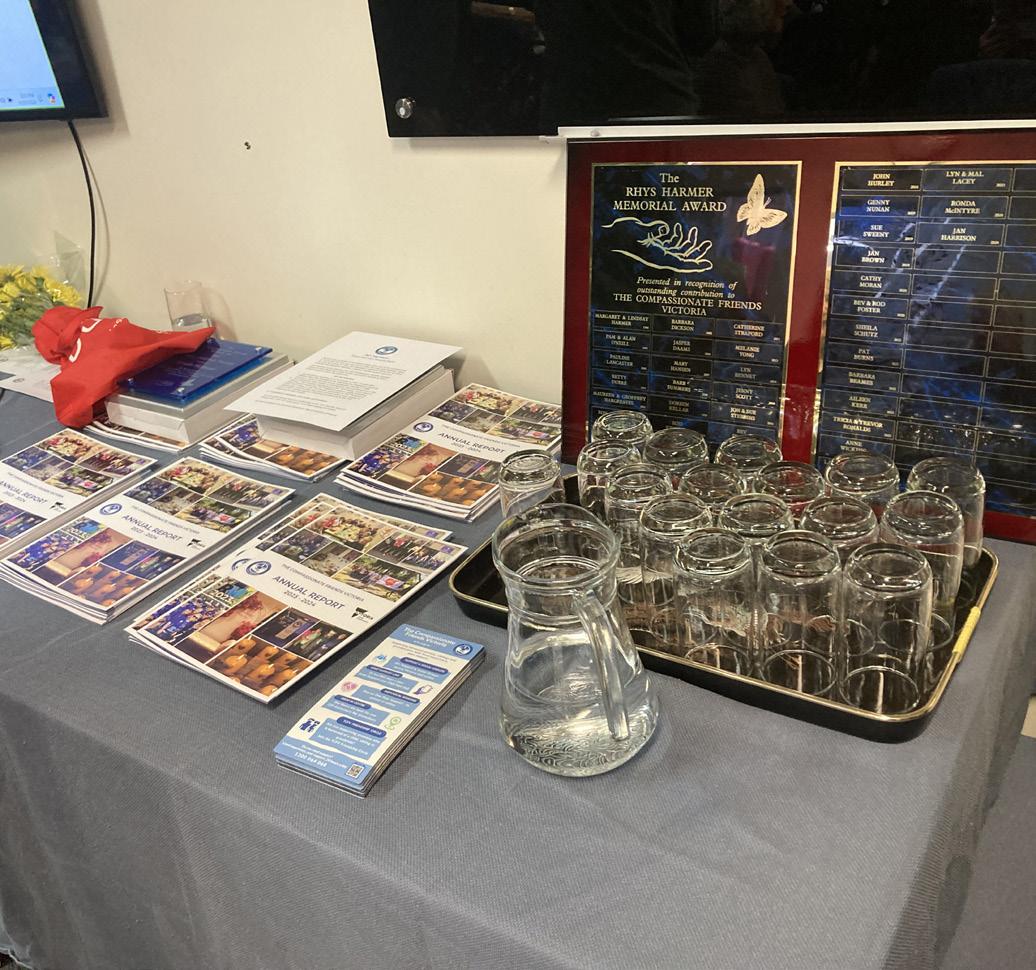
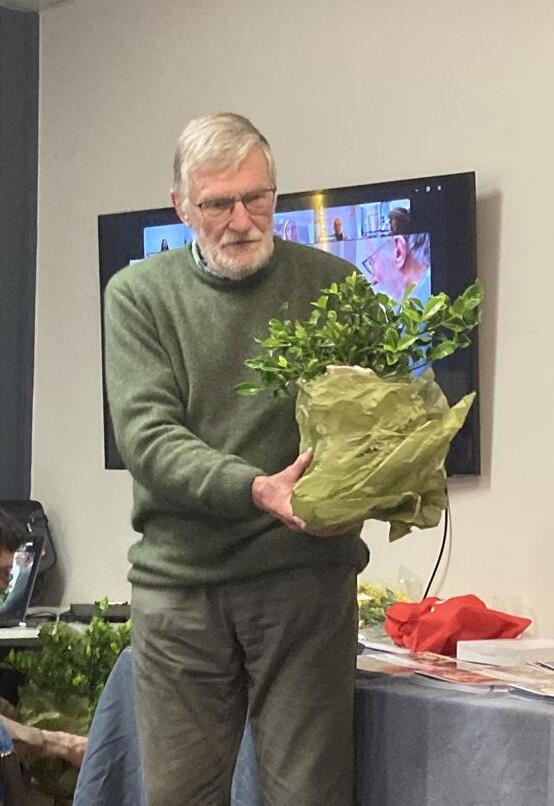
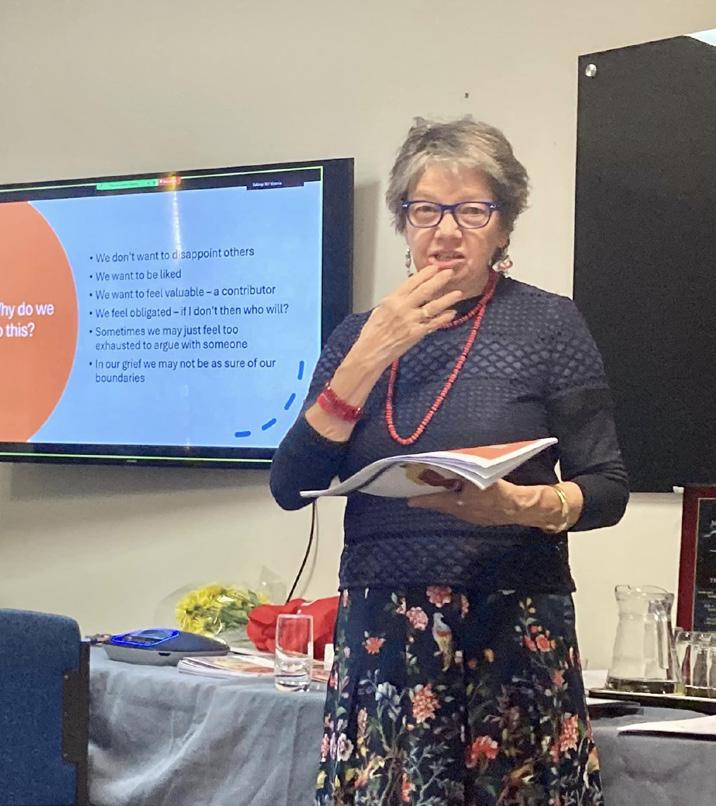




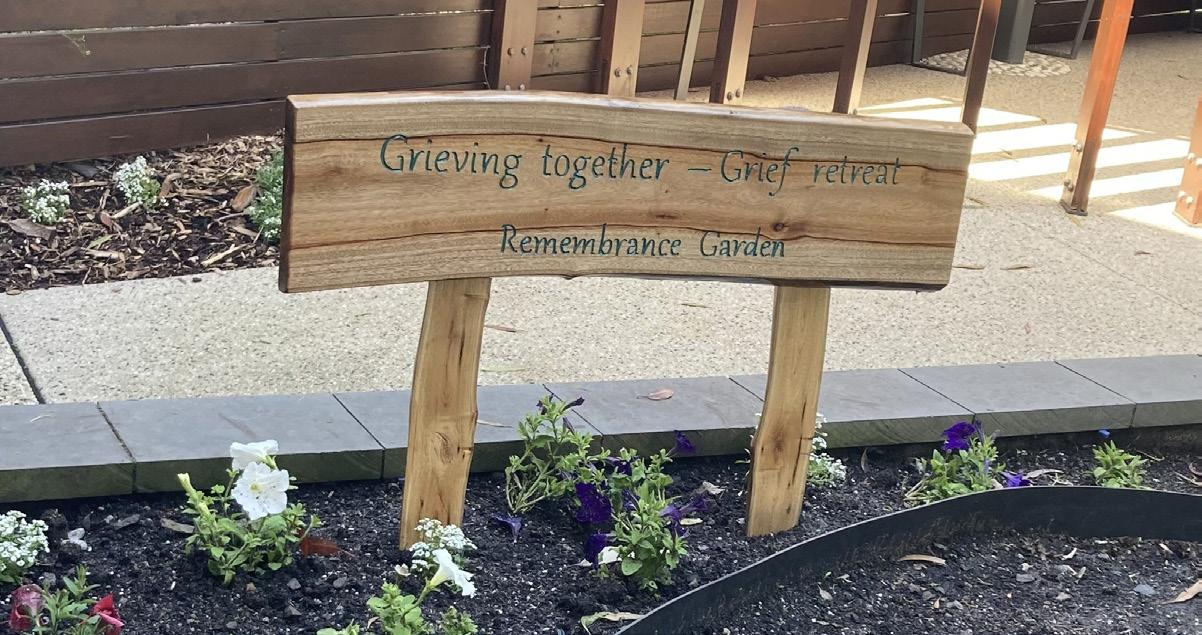
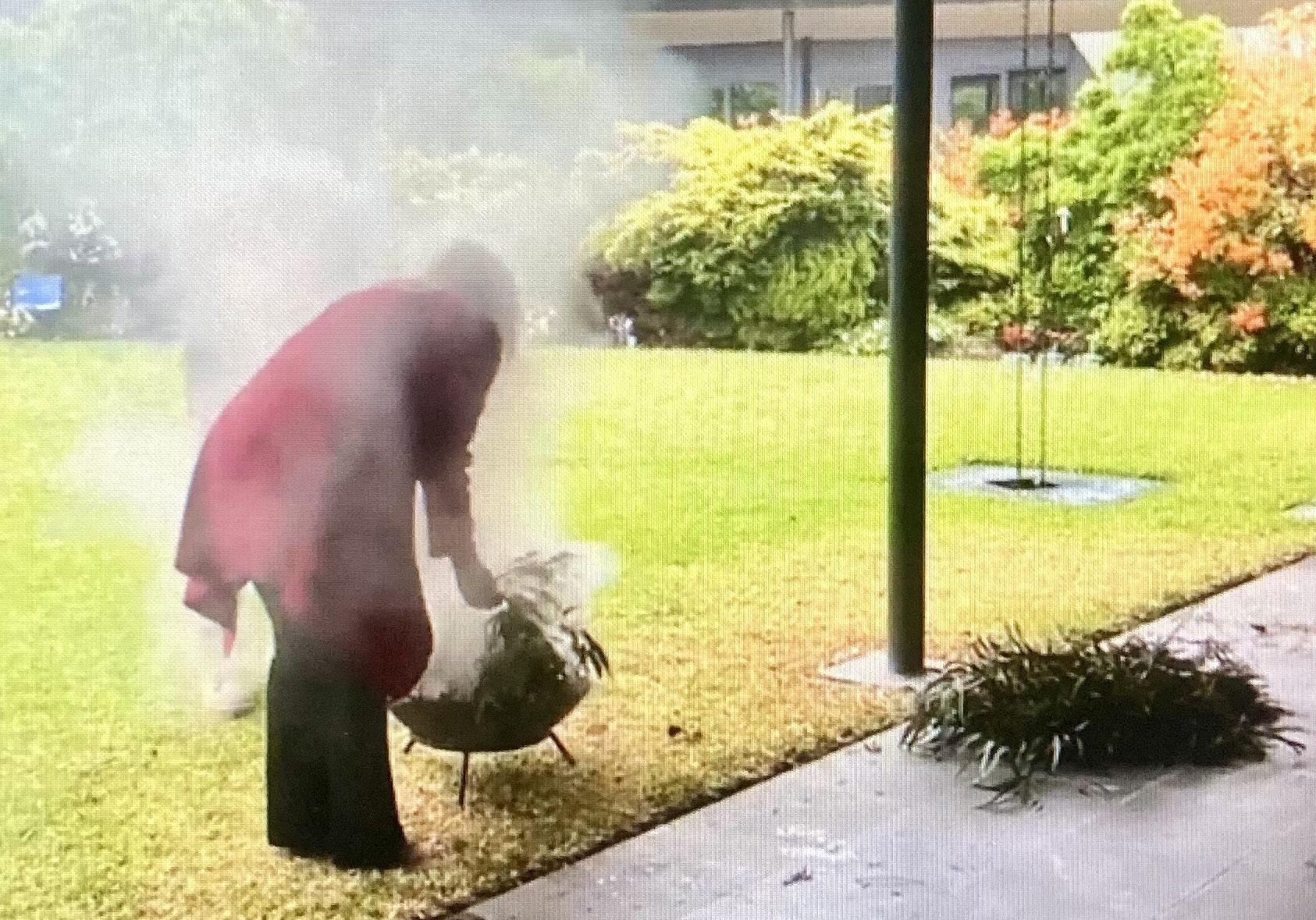

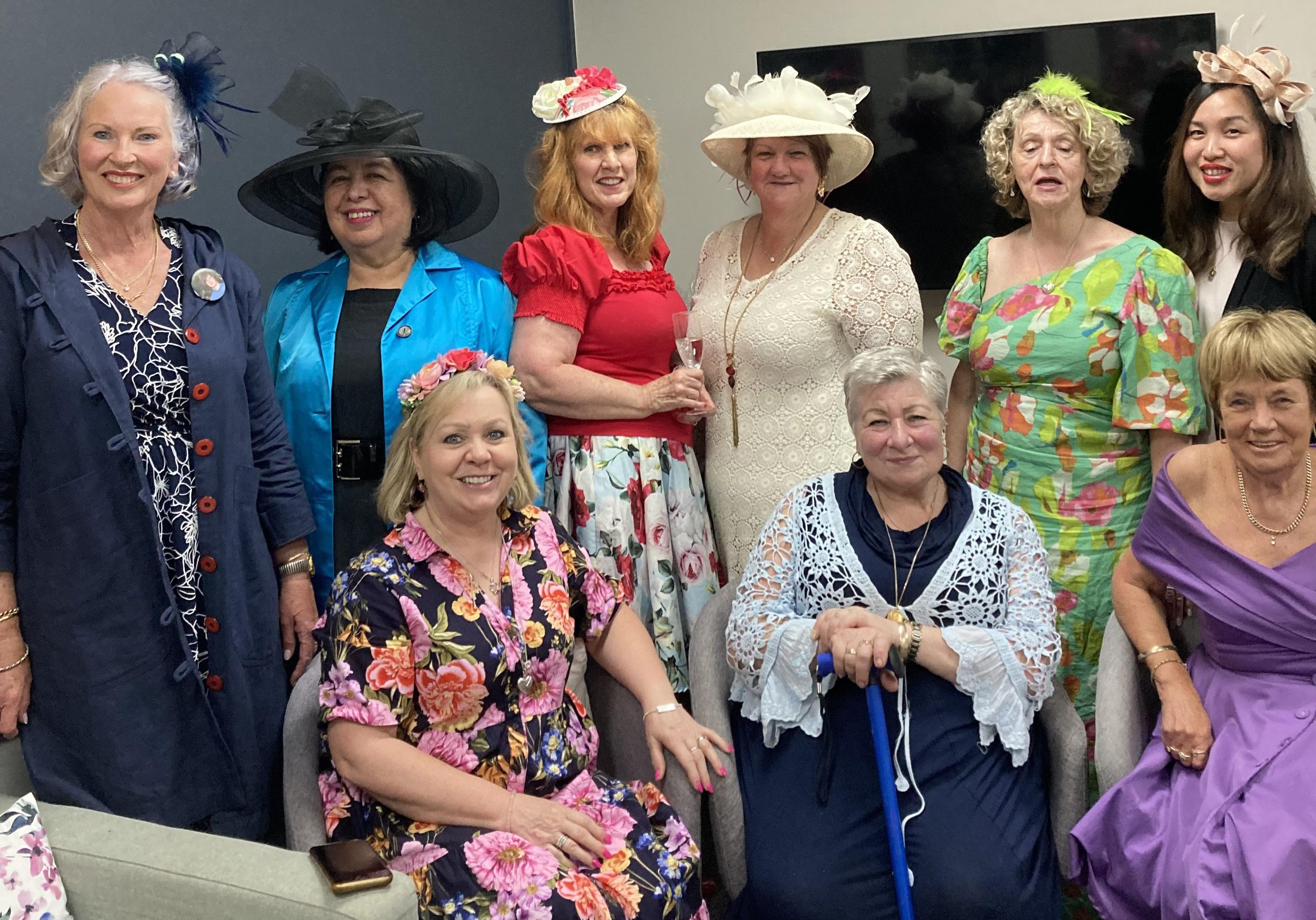

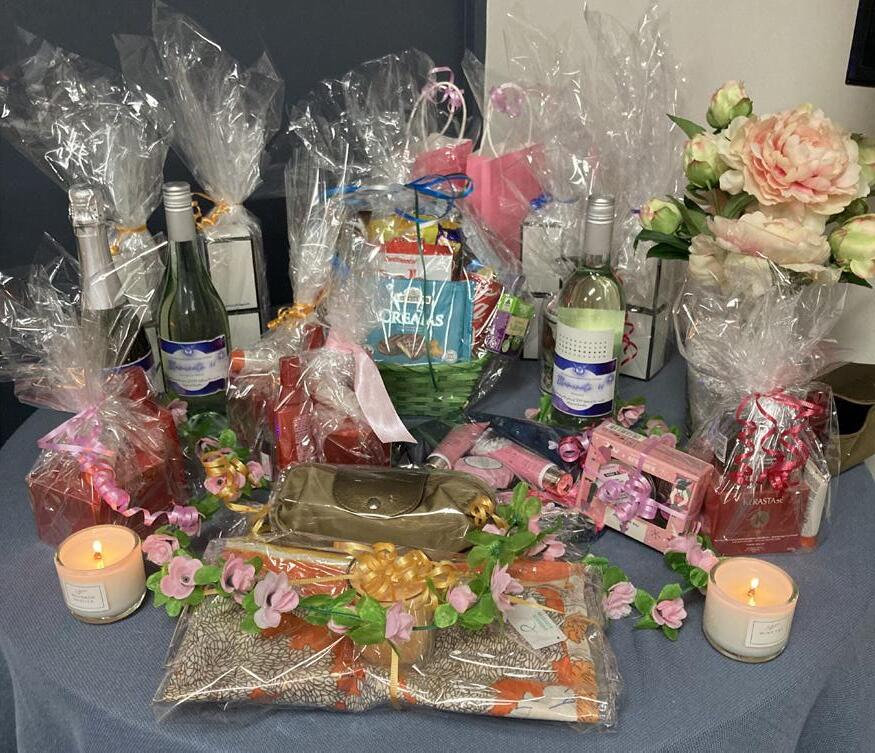
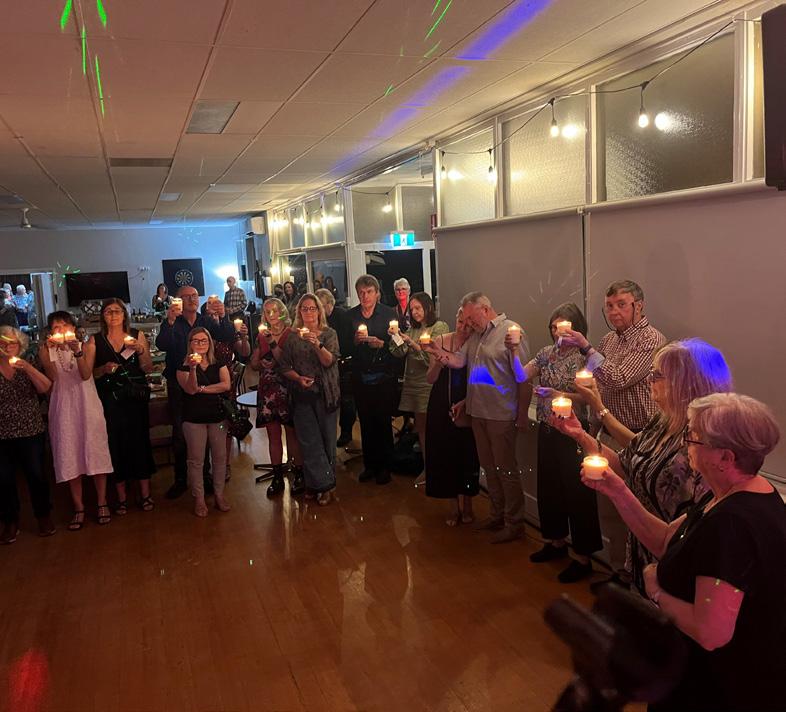

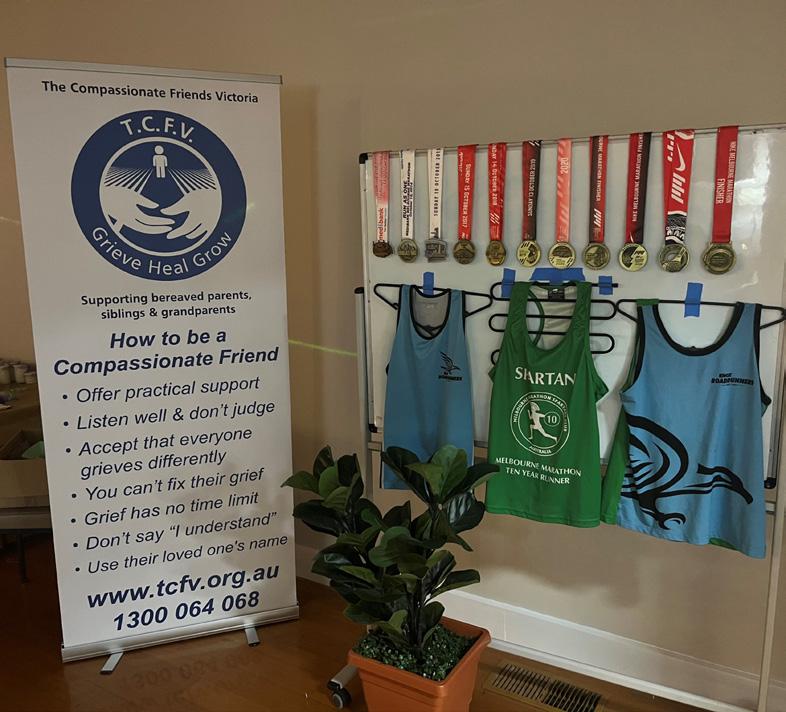


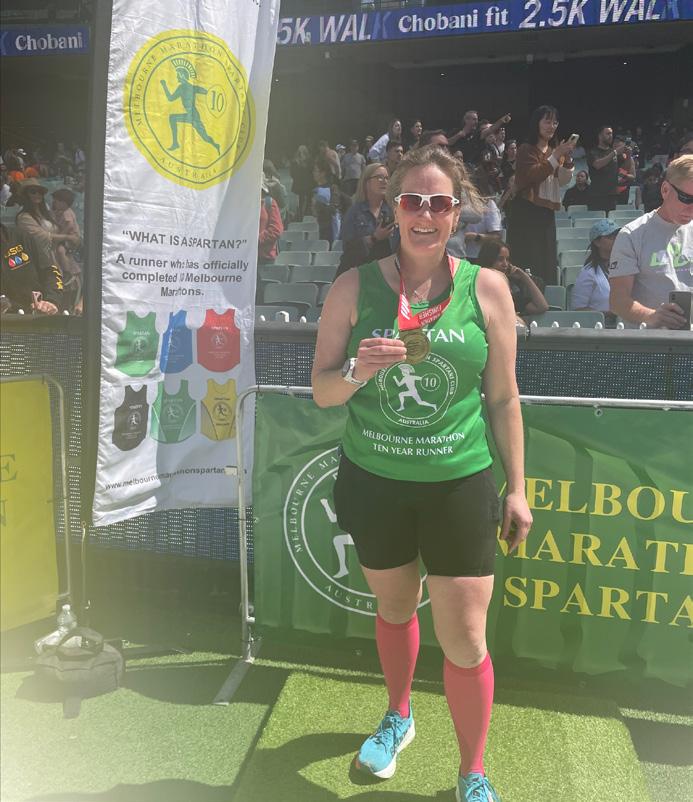



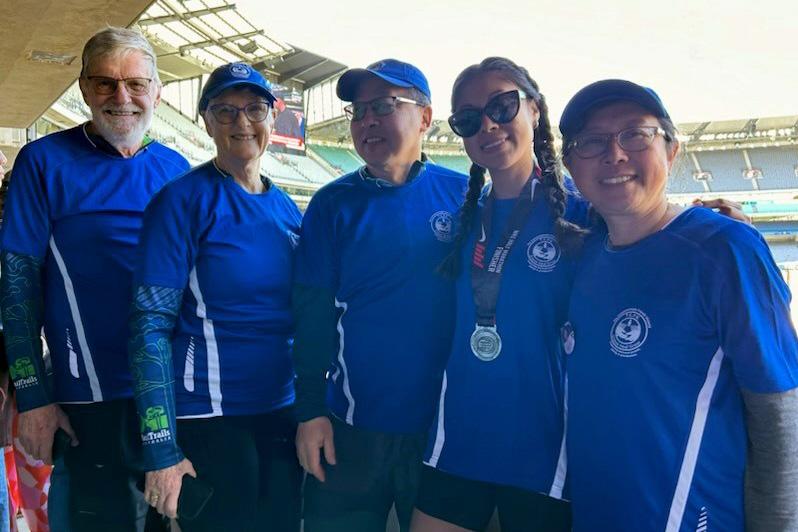
Supporting your children in the weeks and months after a disaster or traumatic event can feel daunting, but there are some basic steps you can take to help support their recovery and protect them from having ongoing difficulties.
1. Listen and attend to your children carefully.
Speak to your children regularly about how they are feeling after the event. Check in with them over time and remember that frequent, shorter conversations are often more supportive than one-off chats.
2. Give children reassurance.
Let them know it is normal to still feel upset after such a big event and that you are there to help them through this. Normalise their feelings of distress and give them the time they need.
3. Continue to be on the lookout for changes in behaviour.
As the weeks go past, initial distress will begin to pass; however, if things aren’t getting better it is important to seek extra support for you and your child.
4. Model the skills you want to see in your child.
Share with them how you are coping, what has helped and be honest about how it is hard for you too, but that with supports and time things will get easier.
5. Understand each child’s unique needs.
Everyone experiences distressing events differently, including children within the same family. Talk about this together, focusing both on hard times and what is helping. Children can learn from this and see that it’s okay to feel differently than others and to recover in their own way.
6. Give your children extra time and attention.
This can be difficult when families are recovering and demands on adults are high; nevertheless, children need close personal attention to know they are safe. It doesn’t have to be elaborate or lengthy, the important thing is children feel connected to you and you can find time for them.
7. Don’t expect perfection in yourself or your children. If things have gone badly, you’ve lost your temper or broken down that is okay. Speak with your children afterwards, apologise if necessary and reassure that they are still safe and loved.
8. Help your children return to a normal routine.
It can be tempting to allow normal rules to slip, but children do best when things are predictable, clear boundaries are set and followed, and they know what to expect.
9. Take time to look after yourself.
This is not an indulgence, but a priority. Our children are not okay if we are not okay.
10. Support children to re-establish their social connections.
At first, children can feel unsure about being away from you, or worry about what to say if friends ask them about what happened. Role play with your children ways to answer questions that help them feel okay and safe, and rehearse ways to seek help with their emotions. Put a plan in place and start with shorter play dates. Let your children know that you want them to spend time with their friends.
When we are grieving, it is hard enough to live each day as it comes. It can be daunting to face a whole new year stretching out in front of us. We may be afraid of what the new year might bring. We may worry whether we can handle any more challenges. Our current experience of emptiness and loneliness may make us reluctant to face a new year.
We might say to ourselves, “I used to be so busy. I used to feel so needed, so useful. Now it seems there’s nothing but empty space and empty time.” It’s bad enough to wake in the morning not sure what we’ll do with the day; what will we do with a whole year?
Longing to recover the past can sometimes make us resistant to accepting the new year. The past was where we were comfortable, where we felt safe, felt good. Grief burdens us today and we fear the new year won’t hold anything different for us. We pine for the person we miss and the precious past we shared. We think about how it was, and wish we were back there.
Approach of a new year may mean different things for different mourners. Whether we welcome, dread or ignore a new year probably depends on where we are in our grief process. The question is not whether, but how grief will show up, and how we’ll work with it.
If your loss was recent, sudden or unexpected, you might experience it as a shock, as if you’re living a bad dream or someone else’s life, trying desperately to get back to your “old” life. The last thing on your mind might be the challenge of a new year. Writing or talking repeatedly about the death of your loved one
might make you feel numb or detached. Eventually, you might realize that your life is not what you thought it would be, that your world has changed.
Therese Rando*, a noted grief therapist and author, describes grieving as a learning process. Each minute with a loved one created patterns of how to operate and what to expect. Each new challenge, like doing the taxes, fixing things, and going into a new year, becomes a fresh occasion to accept the absence of your loved one and find new ways to cope, even if new challenges bring fresh pain.
As you courageously work through your grief over time, you eventually will find the strength to look to the new year with interest and wonder about what it might hold. Maybe you’ll feel eager to welcome change, now that your grief has started to ease.
You might find comfort and joy in knowing that you did all that you could and loved well. Enriched by the love you once enjoyed, you can now show deeper compassion for all who suffer. You eventually will recognize life as a gift to enjoy with whomever crosses your path. In time, you might want to do on your own what you both once hoped to accomplish together.
Even if you’re scared and lonely, and even if you long for the past, you can still open the door a crack to this new year.
Tips to face the new year:
• Begin by getting needed rest. If you’re still exhausted from caregiving or from acute grieving, focus on physical recovery. Considering talking with your doctor about how to rebuild yourself physically.

• Give yourself a mental rest. Replace negative thoughts with positive affirmations about yourself, and soothe yourself with music, prayer, uplifting literature, tears and laughter.
• Pay attention to hope and desire. Find small practical ways to give yourself new pleasure.
• Attend a support group or talk with friends and family members who can list and share memories.
• Seek spiritual support from a local minister, rabbi, priest, imam.
• Find courage to live into the future by living in the present, one day at a time. Do the best you can to care for yourself and others today.
* Our library holds a copy of the book “Grieving: how to go on living when someone you love dies” by Therese Rando, which you may borrow for 4 weeks.
From: https://www.vitas.com/family-and-caregiver-support/grief-and-bereavement/holidays-and-grief/facing-thenew-year-when-you-are-bereaved

Try some of my easy self-care tips to help with the nurturing.

































































As a bereaved Mum I wish that someone had shared some self-care information with me, when my son Chance died, over 30 years ago.


As we all know, grieving is a deeply personal experience, and while no one can take away the pain of loss, self-care is an essential part of healing. Taking small steps to nurture your mental, emotional, and physical well-being can help you navigate grief. Self-care isn’t about fixing the hurt, but about creating moments of rest and relief.













Take Breaks to Breathe -















Allow yourself moments of stillness to breathe deeply. Ground yourself in the present, and let those pauses serve as a reset.





















Grief can disrupt sleep patterns. Try to maintain a calming bedtime routine and limit screen time before bed to improve rest.













Move Your

-
Try a gentle walk or yoga, since physical movement can help to ease tension and release pent-up emotions.




Connect with Support -














































Reach out to supportive friends and family, or a grief support group. Talking to others who understand can provide a sense of comfort, and some relief.





Practice Saying “No” -









Honour your boundaries and allow yourself to decline invitations or tasks that feel too overwhelming.








Embrace Small Comforts -

Find joy in the little things, a cup of tea, a good coffee, a favourite blanket, or perhaps sitting in the sun. These small comforts can help soothe heavy emotions.


























Journal Your Feelings -

Writing down your thoughts and feelings can be a helpful way to process grief and make sense of your emotions.













-













Create small rituals, like lighting a candle, visiting a special place, or doing something that reminds you of your child, sibling or grandchild.
Susan Meyerink Grief and Loss Counselling





































Self-care during grief is about being gentle with yourself. Healing takes time, and these little moments of care can offer support as you journey through loss.






















When people are grieving, their sleep is often affected. They may have trouble falling asleep or staying asleep and the overwhelming fatigue and emotional exhaustion that grief brings can leave them physically and emotionally depleted. Quality sleep is crucial for physical and mental wellbeing and can significantly impact the grieving process. For example, sleep plays a critical role in our ability to process any intense emotions that may arise. Quality sleep allows our bodies to rest and recover, providing much-needed relief, especially when dealing with the intense stress of grief. Therefore, it’s important to establish good sleep hygiene. The restoration that typically occurs during quality sleep can help you approach the next day feeling more physically and emotionally equipped to navigate the challenges of grief. Here are five tips to help boost your quality of sleep
1. Set up a healthy bedtime routine
Creating a consistent bedtime routine helps train your brain to associate the bedroom with peaceful sleep. Avoid stimulating activities and limit your caffeine and alcohol intake. Engage in calming activities like reading, practising mindfulness relaxation, taking a warm bath, or sipping herbal tea to help you unwind before bed.
2. Create an environment with intention and care
Start by decluttering your room. Keep your bedroom free of electronic devices such as TVs, computers, and mobile phones. Create a comfortable and peaceful space that is conducive to relaxation and sleep. If you previously shared a bedroom with the person who has died, thoughtfully contemplate any adjustments you wish to make. Above all, ensure that the bedroom is a welcoming space for you.
3. Journal your thoughts
Journalling can be a powerful tool for processing grief. It provides a space to externalise your innermost thoughts and to express and release painful emotions. Journalling can help you address and work through your emotions, preventing them from lingering and impacting your sleep.
If you are journalling just before bed, write about what you did well that day and then visualise closing your journal as a symbolic act of temporarily setting aside painful emotions before finding peace and rest. Upon waking the next day, record your morning reflections and plans for the day.
4. Cultivate healthy daily habits
It can be challenging to overcome some enduring habits or behaviours while you are grieving. Taking steps towards a healthy lifestyle can significantly impact your stress levels and sleep quality. Eating a healthy, nutritious diet, participating in regular exercise, and fostering meaningful connections with others are all known to contribute to health and wellbeing. Focusing on the benefits of embracing a healthy lifestyle is important to boost your motivation. So, catch some sunlight by ensuring you spend time outdoors during the day to get natural light exposure. Light is one of the key drivers of circadian rhythms that can encourage quality sleep. Move your body through regular exercise, even if it’s a gentle walk around the block. In addition to delivering a host of other health benefits, regular physical activity can boost your sleep. Connecting with others is crucial for mental and physical wellbeing because it fulfils an intrinsic human need for belonging. These interconnected relationships enable you to be open with your emotions and feel genuinely supported by those around you.
5. Reach out for support
If you continue struggling with your sleep routine, consider contacting your GP or a counsellor for support. Excessive or insufficient sleep can compound the challenges of coping with grief, so seeking professional help can be beneficial in tailoring a wellbeing plan to meet your specific needs.
Developed by Dominique Robert-Hendren MAPS FCCLP
Chief Clinical and Education Officer, Grief Australia. 2024.
Sent in by TCFV member and bereaved Mother Barbara Kessel
Losing a child shatters everything you know. It breaks your heart, steals your breath, and leaves you wondering how to keep going. I know because I’ve been there. The day I lost my 4-month-old son, River, a part of me went with him, and the grief was overwhelming. I want to share my story not to offer answers but to show you that you’re not alone. This is raw. It’s real. And it’s a journey I’m still on. But along the way, I’ve learned a few things about surviving, grieving, and finding moments of peace.
The Personal Impact of Loss Grief after losing a child isn’t just sadness: it’s a tidal wave that drags you under, leaving you gasping for air. For me, it’s been a long, messy process. There are no right words, no perfect way to handle it. I’ve felt anger, pain, numbness, and moments where I couldn’t even recognise myself. Some days are unbearable. But in those moments, I learned something crucial - grief is a reflection of love. It’s okay to let yourself feel every gut-wrenching emotion.
Honour Your Emotions It took time, but I realised that I needed to give myself permission to feel everything - rage, sadness, guilt, however it played out. All of it is part of the process. This isn’t about being “strong” or “moving on”. It’s about giving yourself the grace to experience your grief without judgment.
Find Compassionate Support I didn’t have to do this alone, and neither do you. Peer support was a lifeline for me. Having someone help me untangle the mess of emotions inside me made it just a bit easier to keep going. Reach out for help - it’s not weakness; it’s survival. Chatting to someone who had also lived through loss, meant I could see a flicker of light, a flicker of hope that I would get through this.
In the Immediate Aftermath: Finding Your Way The early days after loss were a blur. I barely had the energy to breathe, let alone cope. Every day was a fight, but somehow, I made it through, step by painful step. If you’re there right now, just know that it’s okay to be lost. It’s okay to not know what to do next. But there are ways to put these next steps in motion.
Lean on Support Networks If there’s anything that’s saved me, it’s the people who didn’t leave me to do this alone. The Compassionate Friends Victoria (TCFV) was a way for me to connect with others who had lost children, and in that shared space, I found a sliver of understanding. Sometimes, just knowing someone else gets it can be enough to help you through the darkest moments.
Create a Safe Space for Healing For me, having a physical way of honouring River was incredibly healing. I’ve planted trees, lit candles, raised funds for SIDS research and participated in events which helped me feel connected to him. You don’t have to follow any set path—whatever speaks to your heart is the right way to honour your child. For me, starting a charity in his name to find answers for SIDS was a lifeline. River’s Gift was established very soon after he passed away and it enabled me to have a focus. It truly was his gift to me.
Navigating Grief: Self-Care Isn’t Optional Grieving feels like a full-time job. It consumes your mind, body, and spirit. But through all that pain, I learned that self-care isn’t selfish. It’s survival. You don’t have to feel “okay” to care for yourself. In fact, some days, just getting out of bed is enough.
In the depths of grief, taking care of yourself might feel trivial, but it’s crucial. Simple things like eating a meal or getting some fresh air can provide a small sense of normalcy in a time that feels anything but normal. And it’s okay if some days, that’s all you can manage.
Set Realistic Expectations One of the hardest lessons I’ve learned is that grief isn’t linear. Some days, I feel like I’m making progress, and then I’m right back to square one. But that’s okay. Healing takes time, and there’s no deadline. Be kind to yourself on the bad days and celebrate the small victories when you have them.
Finding Meaning After Loss Loss rewires your world. It makes you question everything. But in time, I’ve found moments of meaning, moments where I felt a little lighter, even if it was just for a few minutes. You may not feel it now, but you will find those moments again.
Establish a Routine In the chaos of grief, establishing a routine helped me regain some control. It doesn’t have to be complicated—simple things like waking up at the same time or going for a daily walk can provide a sense of grounding when everything else feels like it’s spinning out of control.
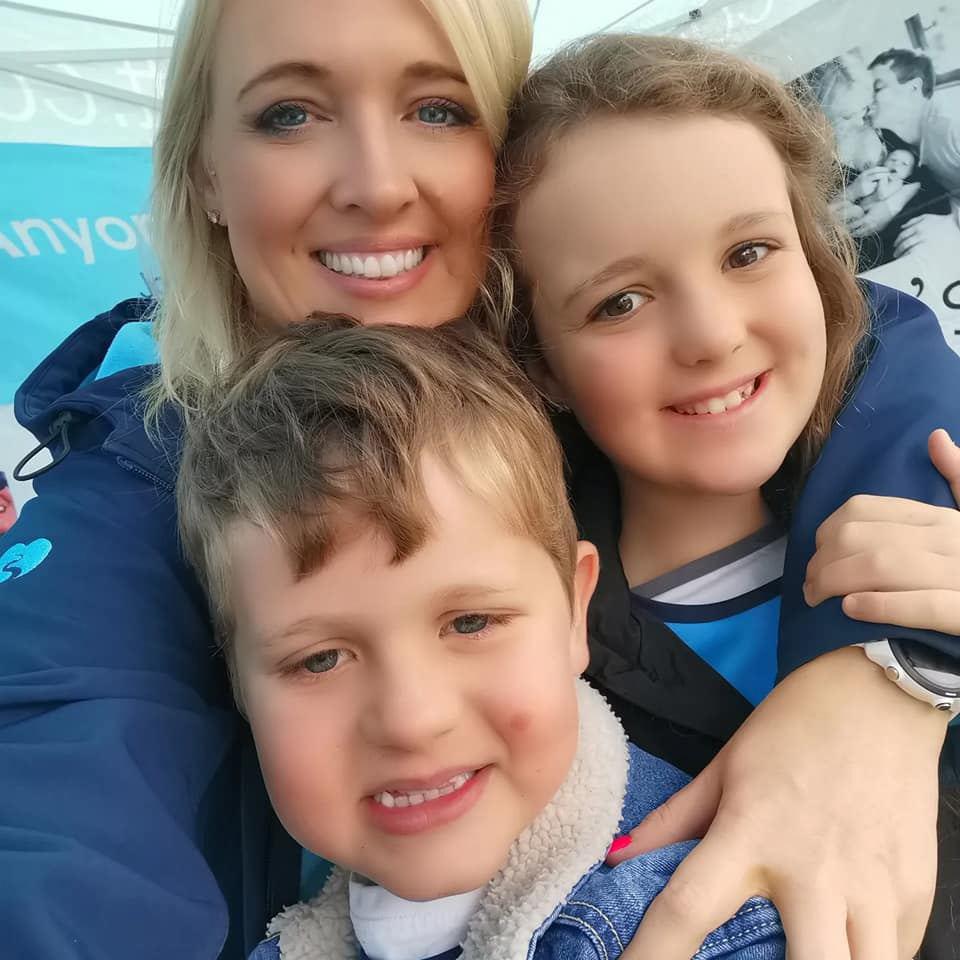
Allow Yourself Joy This might sound impossible, but it’s okay to laugh. It’s okay to smile. For so long, I felt guilty for feeling any happiness, like I was betraying my grief. But those moments of joy are part of the healing process. Embrace them when they come—they don’t diminish your love or your loss.
The Compassionate Friends Victoria (TCFV) TCFV offers support groups where you can connect with other grieving people as well as a 24-hour grief support line. The magic lies in the lived experience of every volunteer and staff member, each of whom has lost a child, grandchild or sibling.18 months ago, I was privileged to take the reins as CEO of TCFV and I feel honoured to walk with bereaved people on this journey.
Moving Forward, Not Moving On Grief is a journey, and there’s no finish line. I’m still learning how to navigate this new world without River, and I probably always will be. But I’ve found strength in my vulnerability and healing in the support of others. I’ve learned that it’s okay to ask for help, to lean on others, and to take it one day at a time.
You don’t have to do this alone. Reach out, take care of yourself, and know that while this journey is painful, there is hope and healing to be found in the cracks.
In honour of River. Forever loved, never forgotten.
Alex Hamilton Bereaved Mother to River (4 months) and Mum to rainbow babies, Shiloh 12 and Bodhi 9. CEO of TCFV and Co-Founder of River’s Gift
This blog was written by Alex at the invitation of “About Grief Talks”
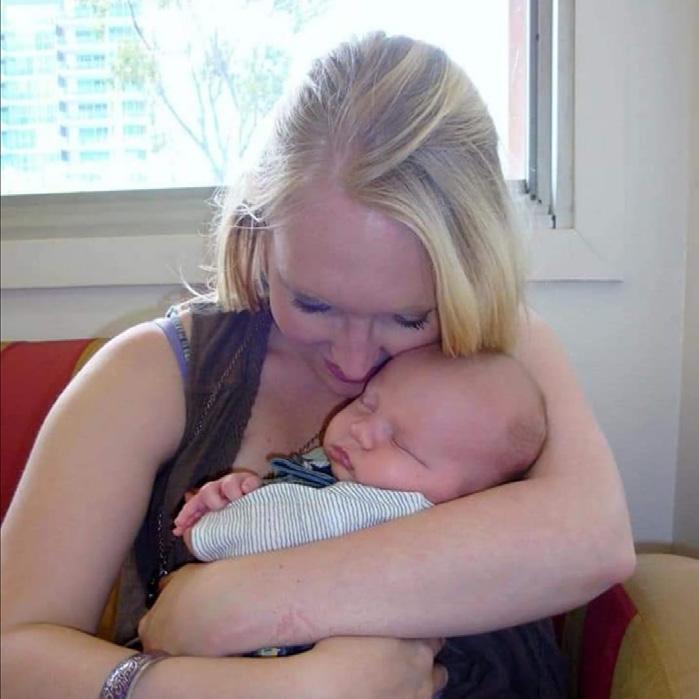
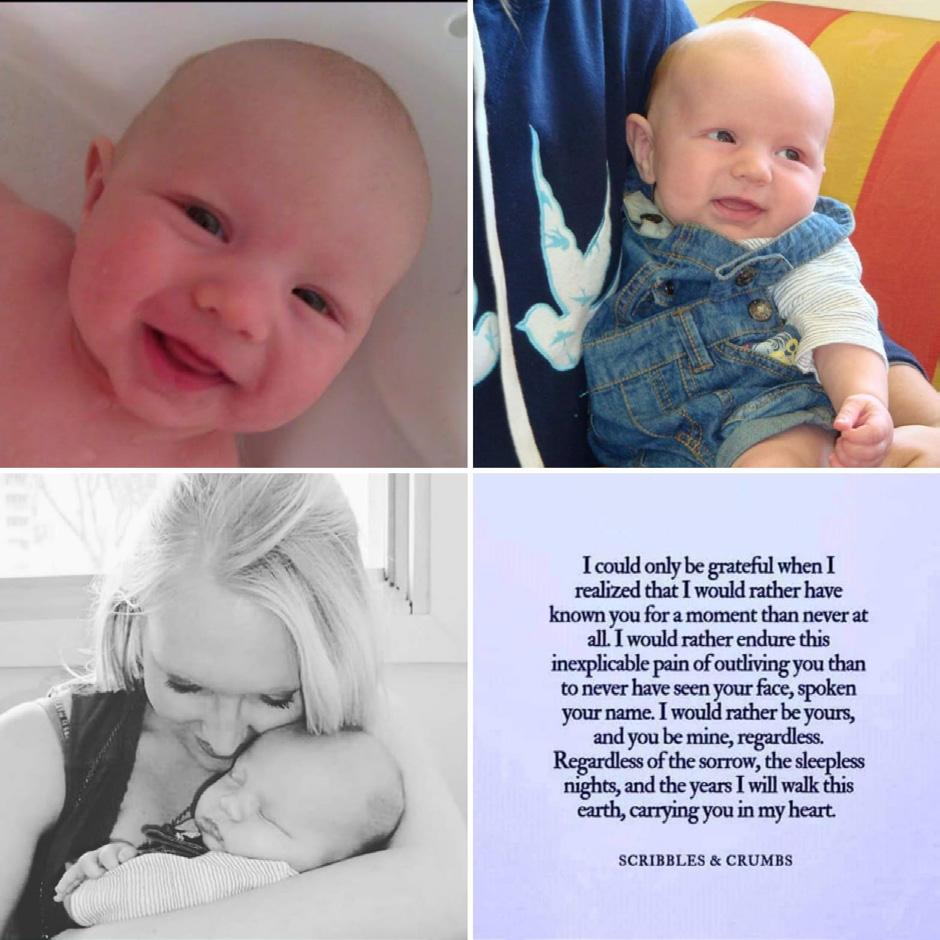

For Unexpected Moments and End of Life Wishes. Free to all TCFV Members!
Wishkeeper is a highly secure and contemporary platform that enables you to share all of your important and vital life information with loved ones, so that you have peace of mind that your wishes are carried out when they need to be.
Whatever stage of life you’re at, Wishkeeper provides the solution to staying organised and prepared for what life may present. Be it expected...or unexpected. Embark on your journey to an organised and fulfilling life today in four easy ways. Collect, Protect, Plan & Share.
• COLLECT. Centralise what matters most, from essential documents to family keepsakes.
• PROTECT. Everything is secure in one place, protected from fire, flood, theft or being misplaced.
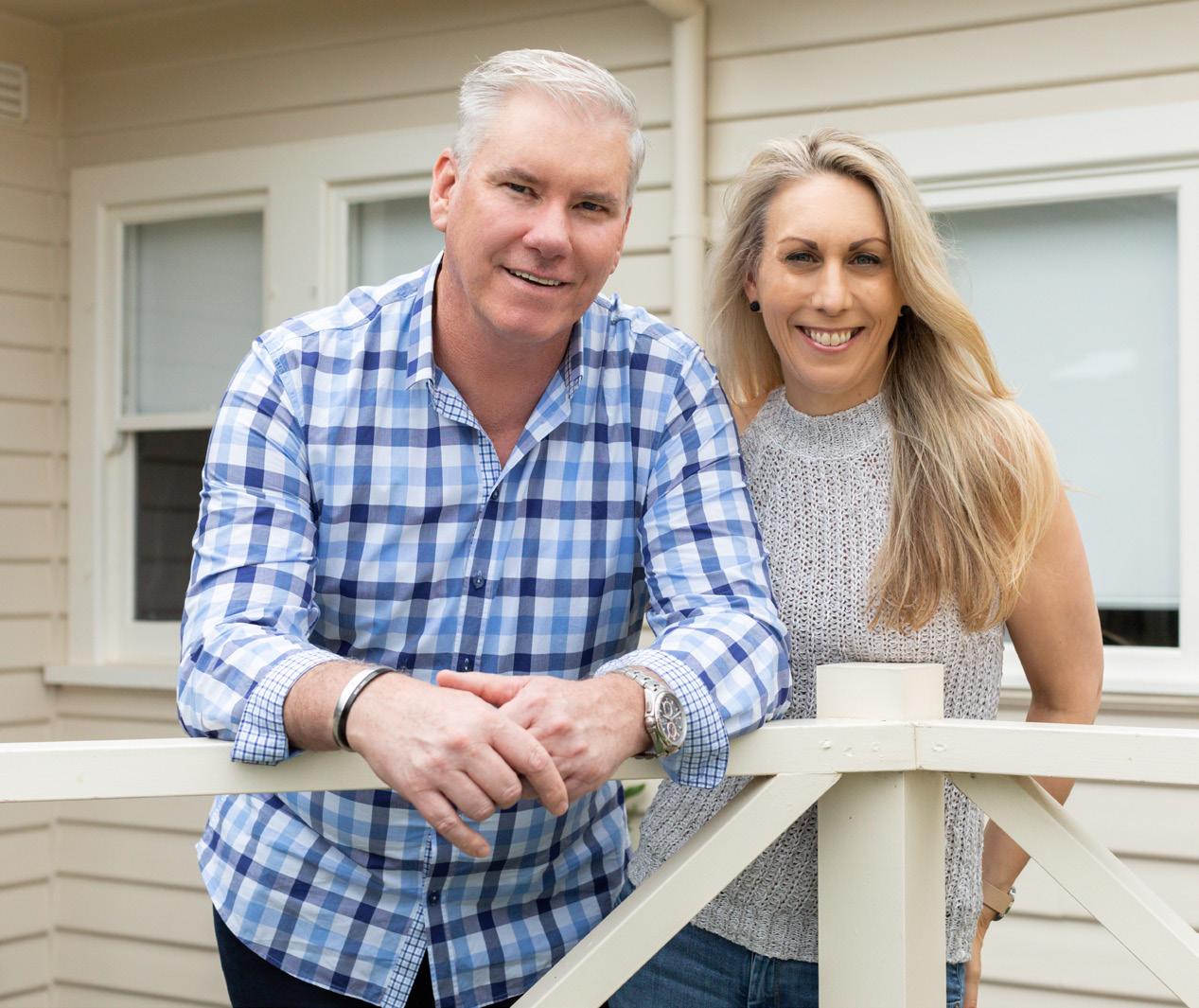
• PLAN. Create a backup plan for any of life’s unexpected events through to documenting your final wishes.
• SHARE. Choose who can see your information, when they can see it, and how much they can see.
• Plus, you can update your Wishkeeper from anywhere at any time.
for?
If there are people in your life you care about and people who care about you, the answer is simple – Wishkeeper is for YOU! Importantly, don’t wait for a life event to be the trigger to begin your Wishkeeper profile. Even just a few essential pieces of information can help people in your life if something unexpected happens to you.
In the simplest of terms, by investing in Wishkeeper you become a Wish Maker. You then populate as much of your Wishkeeper as you like, starting with the 48 sub-categories you have access to. You then assign a minimum of two trusted Ambassadors with ‘Allow Now’, ‘After Death’, or ‘Never’ permissions.
Allowing access now is for the information that will assist your ambassadors during a life event where you’re going to need some help. The rest of your information and wishes would remain securely locked until you’re passing is confirmed and released to the Ambassadors you chose.
Changes to your information, what your ambassadors see and when and who your ambassadors are, can be made quickly and easily. As the Wish Maker, you are always in the driver’s seat.
Please visit www.wishkeeper.com.au for more information and where you’ll find a an explainer video and a series of short ‘How To’ video instructions which you can find in the Resource Centre.
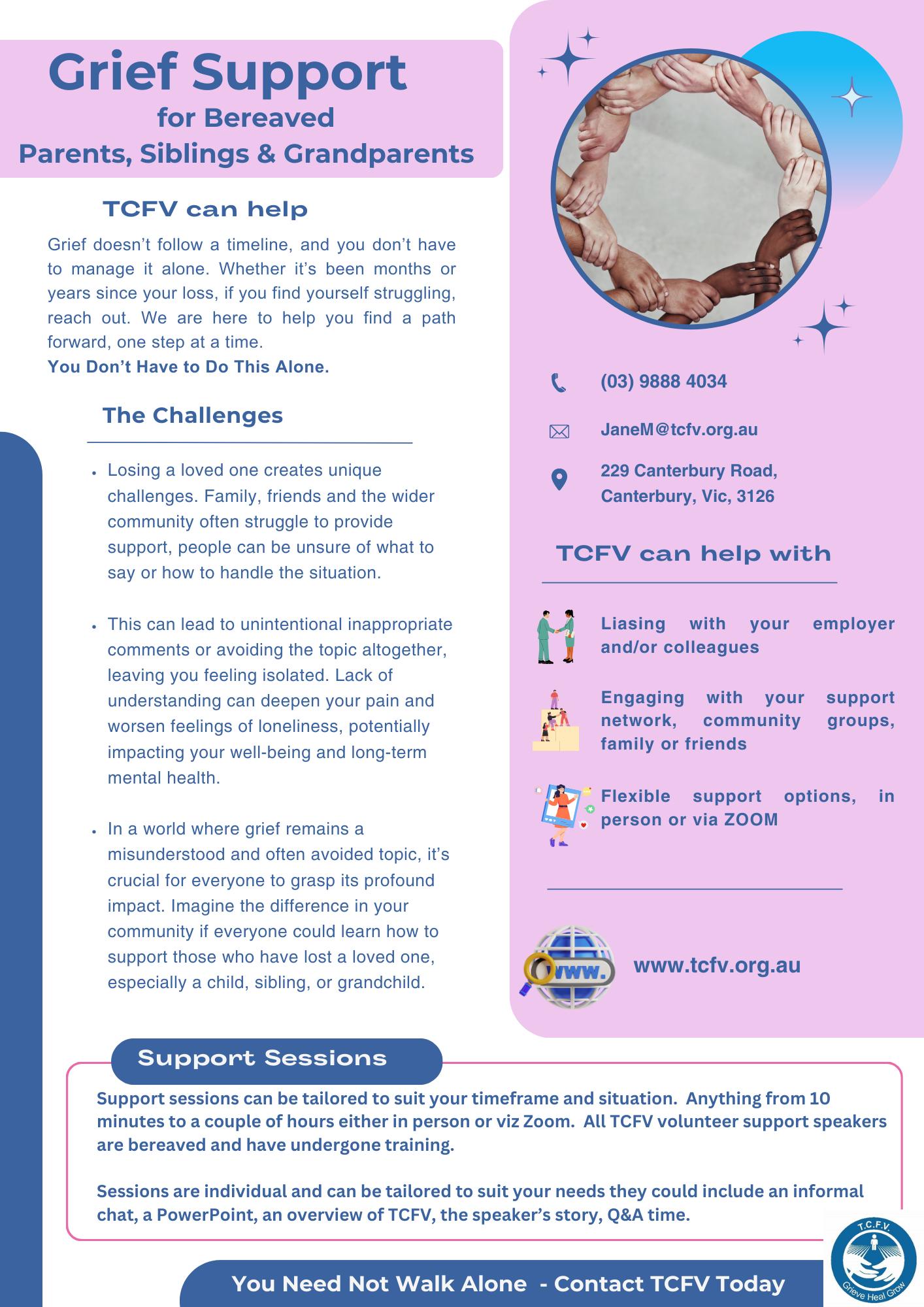

The Compassionate Friends Victoria is part of a worldwide organisation, which was founded in England in 1969 and established in Victoria in 1978. It is a mutual assistance, self-help organisation offering friendship and understanding to families following the death of a child, sibling, or grandchild of any age and from any cause. The primary purpose is to assist them in the rebuilding of their lives after the death of their child, sibling, or grandchild and to support their efforts to achieve emotional and mental health.
CEO: Alex Hamilton
Groups Coordinator: Andrew McNess
Community Education & Communications Coordinator: Jane Moschetti
IT: Jesse Bendel
Board
President: Kevin Purvis
Vice President: Amanda Bond
Secretary: Claire Kuhnell
Board Member: Bruce Houghton
Board Member: Sonia Aberl
Board Member: Ann Smith
Regional Member: Robyn Reeve
The annual membership fee is $65, which plays a significant role in helping us provide essential services. Your contribution supports our 24-hour grief support services, over 30 support groups, our center, training programs, educational materials, and more. This small $10 increase from previous years helps us meet the rising costs we face as a charity.
Additionally, your $65 membership also allows you to receive our magazine in a hard copy, should you choose.
Please note that memberships renew every year on July 1st. We are also pleased to bring back our “Pay It Forward” option for members who wish to gift a year’s membership to someone who might not otherwise be able to afford it. Our “Keep in Touch” ($33 per annum) option is also available for bereaved families who still want to maintain a connection and support the services we provide for other families.
Thank you for your ongoing support. Together, we can continue to provide the compassionate care and resources that make a difference in so many lives.

The Compassionate Friends Victoria Patron: Rhonda Galbally AC 24-hour grief support – available on 03 9888 4944 / 1300 064 068 Bereaved drop-in Centre, Hours 9.30am – 4.30pm Monday to Friday
Disclaimer: Unless expressly stated, the views expressed in articles, poetry etc. in this magazine are not necessarily the views of TCFV Board, Staff or the editorial team. The editor reserves the right to edit any contribution. Permission is given to Editors & Chapter Leaders of The Compassionate Friends to reprint material from the magazine. We request that credit be given to the author & their TCF Chapter.
Note 1: Unless stated otherwise all groups are open to bereaved parents, siblings and grandparents – 18 years and above – who are bereaved through any means.
Note 2: Sometimes, group meeting details need to be updated between when the magazine goes to print and when it is delivered to your letterbox or Inbox. For the most up-to-date listing of meetings, please visit: www.tcfv.org.au
Support Group Meetings provide bereaved parents, siblings and grandparents (18+ years) the opportunity to meet in a safe environment with others who have “been there”, who understand and care. Group attendees report that meetings are an essential part of their “learning to live again” journey.
Social Support Group Meetings are similarly led by group leaders. They are a lovely social opportunity for bereaved people, often held at a cafe. Discussion is more general, although can sometimes centre on griefrelated issues. If you are needing more substantial time to explore your grief-related issues (and this can particularly be the case when you’re newer in your grief), we recommend a formal support group.


A minority of groups require registration to attend.
Please notify our telephone support-line of your intention to attend the next meeting of one of the following groups: Hawthorn East Social Group / Box Hill Social Group / Canterbury Evening Support Group
Please register to attend an upcoming session of one of these groups: Culture Club / Walking Through Grief / Express Yourself Through Art at TCFV CENTRE / Online Support Group / Online Support for Regional Suicide -Bereaved / Online Express Yourself Through Art.
I’m new to meetings. Should I speak with the leader/s first before attending a meeting?
We highly recommend you speak with the group leader prior to your first meeting at any TCFV group. Call TCFV on 9888 4944 (Melbourne)/1300 064 068 (regional) and we can help arrange a chat. Speaking with the leader is a valuable introduction to the group and what it can offer you in your grief journey.
I have baby-sitting problems. Would it be alright to bring my child with me?
While we understand the difficulties of finding childcare, we must ask that out of respect for the needs of others, you do not bring children (under 18 years of age) to meetings.
Someone in my household has COVID-19, but I don’t. Can I still attend a meeting?
Meetings, by design, have people sitting in close proximity to one another. If someone in your household has COVID-19, we would prefer that you not attend a face-to-face meeting in that month. Please be aware that, in its place, you could have a one-on-one peer support session (see: www.tcfv.org.au/one-on-one) and/or attend an online support group (for upcoming sessions visit www.tcfv.org.au/events).
Bereavement support for under-18s.
While TCFV’s services are for individuals 18 years and above, there are a number of other organisations that provide under-18 services, such as Grief Australia, Headspace and Jesuit Social Services. A listing of these services can be found at: www.tcfv.org.au/under-18s
We have TCFV volunteers in the townships / regional cities listed below who have some availability for a peer support phone chat or coffee catch-up:
Bairnsdale - Elvie Ballarat - Robyn
Camperdown - Judi Castlemaine -Matthew Horsham - Ronda Melton - Deb Wodonga - Lynne
Please enquire on 1300 064 068
SUPPORT GROUP
Which day in the month is the meeting held? Where is meeting held?
Bayside 4th Wednesday 7pm-9pm (Jan-Nov)
Bendigo 4th Tuesday 1:30pm (Jan-Nov)
Canterbury Daytime 4th Wednesday 11am (3rd Wed in Dec)
Canterbury Evening 2nd Tuesday 7:30pm (Feb-Dec) Registration required: call 03 9888 4944
Canterbury Siblings 3rd Tuesday 7.45pm
Canterbury Suicide-bereaved 4th Monday 7:30pm (Jan-Nov)
Highett Neighbourhood Community House, 2 Livingston St, Highett
Long Gully Community Centre, 23-29 Havilah Rd, Long Gully
TCFV Centre, 229 Canterbury Rd, Canterbury
TCFV Centre, 229 Canterbury Rd, Canterbury
TCFV Centre, 229 Canterbury Rd, Canterbury
TCFV Centre, 229 Canterbury Rd, Canterbury Eltham 1st Thursday 11am (Feb-Dec)
Geelong Last Tuesday 7:30pm (Jan-Nov)
Menspace 3rd Wednesday 7pm-9pm (Feb-Dec)
Mildura 2nd Saturday 11am (Feb-Dec)
Eltham Library Community Room, Panther Place, Eltham
Noble Street Uniting Church, 26-42 Saffron St, Newtown
TCFV Centre, 229 Canterbury Rd, Canterbury
MADEC Community College, 133-137 Madden Ave, Mildura Portland 3rd Tuesday 7pm (Feb-Dec)
Star Theatre, 40 Julia St, Portland Rowville 1st Friday 1pm (Feb-Dec)
Somerville Bereaved Parents Group
*Run by ProjexJ (projexj.org), with support from TCFV 4th Thursday 10am-1pm. (Jan-Nov)
Sunshine 3rd Tuesday 7pm (Feb-Dec)
Sunshine Bereaved Through Suicide 1st Tuesday 7pm (Feb-Dec)
Warragul Last Wednesday 7:30pm (Jan-Nov)
Bridgewater Centre, cnr Fulham Rd & Bridgewater Rd, Rowville
Somerville Community House, 2/21Worwong Avenue, Somerville
Salvation Army Drop-In Centre, 42 Devonshire Rd, Sunshine
Salvation Army Drop-In Centre, 42 Devonshire Rd, Sunshine
Warragul Community House, 138 Normanby St, Warragul Warrnambool 1st Wednesday 7:15pm (Feb-Dec)
ONLINE SUPPORT GROUP Which day in the month is the meeting held?
Regional Suicide-bereaved 3rd Thursday bimonthly 7pm (Feb, Apr, Jun, Aug, Oct, Dec) Registration required: www.tcfv.org.au/events
Bereavement Support Group (Bereaved through any means)
1st Tuesday monthly 7:30pm (Feb-Dec) Registration required: www.tcfv.org.au/events
Archie Graham Community Centre, Room CP1, 118 Timor St, Warrnambool
Where is meeting held?
Held via Zoom.
Held via Zoom.
SOCIAL GROUP Which day in the month is the meeting held? Where is meeting held?
Box Hill
Geelong
2nd Thursday 7pm (Jan-Nov)
Bookings are essential. Please call 03 9888 4944.
2nd Tuesday 10am (Feb- Dec)
Box Hill RSL, 26-28 Nelson Rd, Box Hill
Brioche Café, 175 West Fyans St, Newtown Hawthorn East 4th Tuesday 7pm (Feb-Nov) Bookings are essential. Please call 03 9888 4944.
Southern Peninsula 1st Tuesday 12 noon (Feb-Dec)
ART THERAPY GROUP
Express Yourself Through Art at TCFV Centre
Online Express Yourself Through Art
LIGHT EXERCISE GROUP
Walking Through Grief
READING GROUP
Culture Club (formerly “Book Club”)
INTERSTATE GROUP
Darwin
Which day in the month is the meeting held?
3rd Monday of the month 7:30pm (Feb-Dec) Registration required: www.tcfv.org.au/events
1st Thursday of the month at 1.30pm (Feb-Nov)
Café Paradiso, 213-215 Camberwell Rd, Hawthorn East
Contact 1300 064 068 for details
Where is meeting held?
TCFV Centre, 229 Canterbury Rd, Canterbury
Held via Zoom. To register, please visit: www.tcfv.org.au/events
Which day in the month is the event held? Where is meeting held?
1st Friday 9am-10am (Feb-Dec) Registration required: www.tcfv.org.au/events
Which day in the month is the meeting held?
A Saturday morning, bimonthly in 2025: Feb, Apr, Jun, Aug, Oct Registration required: www.tcfv.org.au/events
TCFV Centre, 229 Canterbury Rd, Canterbury
Where is meeting held?
Four Beans Café, 22 High St, Northcote
Which day in the month is the meeting held? Where is meeting held?
Last Wednesday 7pm (Jan-Nov) Contact Group Leader (Ingrid) on 1300 064 068 or darwin@tcfv.org.au
MLA Office (Member for Legislative Assembly), Shop 15A, Oasis Shopping Centre, 15 Temple Terrace, Palmerston, NT, 0830.
Please note: Bereavement Peer Support in Hobart
Bereaved parents, siblings and grandparents in Hobart meet informally at a café setting on a regular basis (often a weekend afternoon). For more information on this non-TCFV support network, including dates and times, please contact our telephone support line on 1300-064-068.





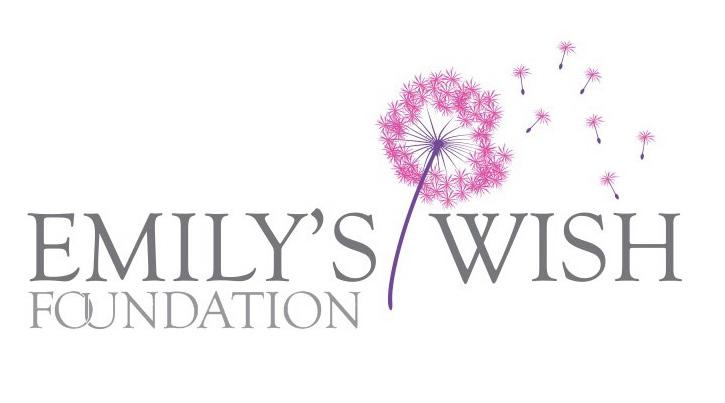
Agnes Tan
Avery Poole
Bendigo Community Bank – Inner East (Ashburton, Balwyn, Canterbury, Surrey Hills)
Bradley Family
Bryn Humphreys
Bunnings Box Hill
Bendel Family
Brunswick United Masonic Lodge
Charles Tegner
Cheryl Lardner
City of Boroondara
Coates Family
Country Women’s Association of Victoria
Dorothy Ford
Eastern Press
Emily’s Wish Foundation
Galati Family
Geelong Cemeteries Trust
Guardian Plan
Harmer Family
Ian Zadow
James Marcon Foundation
Jennifer O’Reilly
John Brown
Judith Theobald
Justice Connect
Karen Philippzig
Kerilee Bolto
Kidsafe Victoria
ACT & Queanbeyan
New South Wales
Queensland
South Australia
Darwin
Le Pine Funerals
Legalite
Life Time Trophies
Lord Mayor’s Charitable Foundation
Louisa Ong
Marken Hosting
Meet Me In The Middle Cafe
Michael & Maureen Cawley
Mindfull Aus
Mirella Marcon
Nunan Family
Pam & Max Williams
PivotLife
Robyn Arya
Scotsglen Singers Inc
Shelia Schutz
Sim Family
SM Creative
Strickland Family
Sue Binzer
The Pethard Tarax Charitable Trust
The Retreat at Mount Cathedral –Kerilee & Nic Bolton
Tobin Brothers
Trembath Family
Tripleconnect
Yarra Ranges Council
Yvonne Sharpe
Wall, Theresa, Shane & Family
National Number 1300 064 068
TCF Mandurah 0494 149 866
02 9290 2355 Suite 602, 109 Pitt Street, Sydney, NSW 2000 07 3540 9949 505 Bowen Terrace, New Farm 4005 0456 820 133
darwin@tcfv.org.au
08 9535 7761 Mandurah Lottery House - 7 Anzac Place, Mandurah 6210
TCF on the internet - United Kingdom www.tcf.org.uk – New Zealand (email) tcf.otago@xtra.co.nz USA www.compassionatefriends.org – SA www.compassionatefriends.co.za – Canada www.tcfcanada.net/
The Compassionate Friends Victoria
229 Canterbury Road, Canterbury VIC 3126 PO Box 171 Canterbury, Vic. 3126
Support Phone: (03) 9888 4944 Administration Phone: (03) 9888 4034
Email: support@tcfv.org.au Web: www.tcfv.org.au